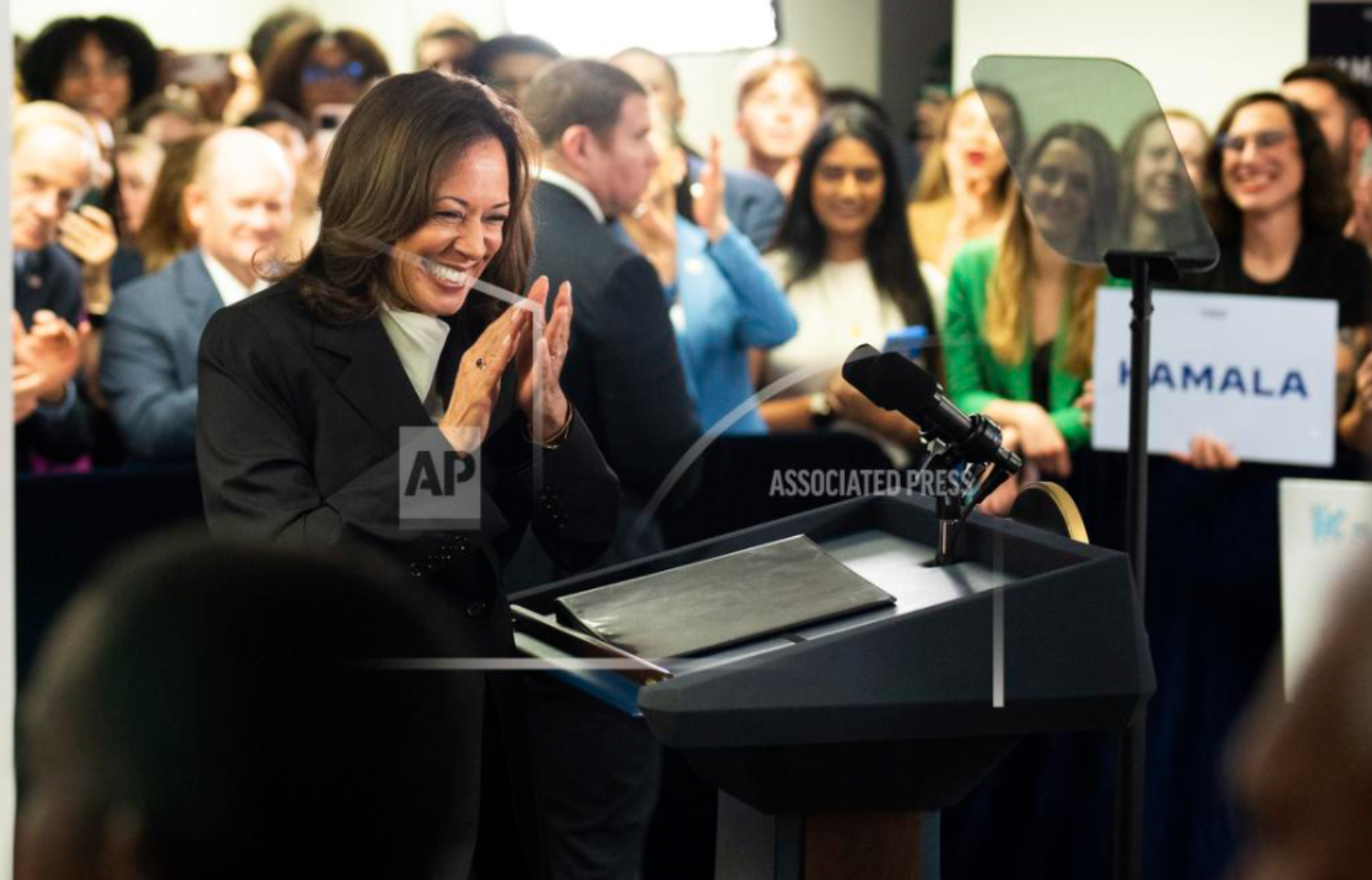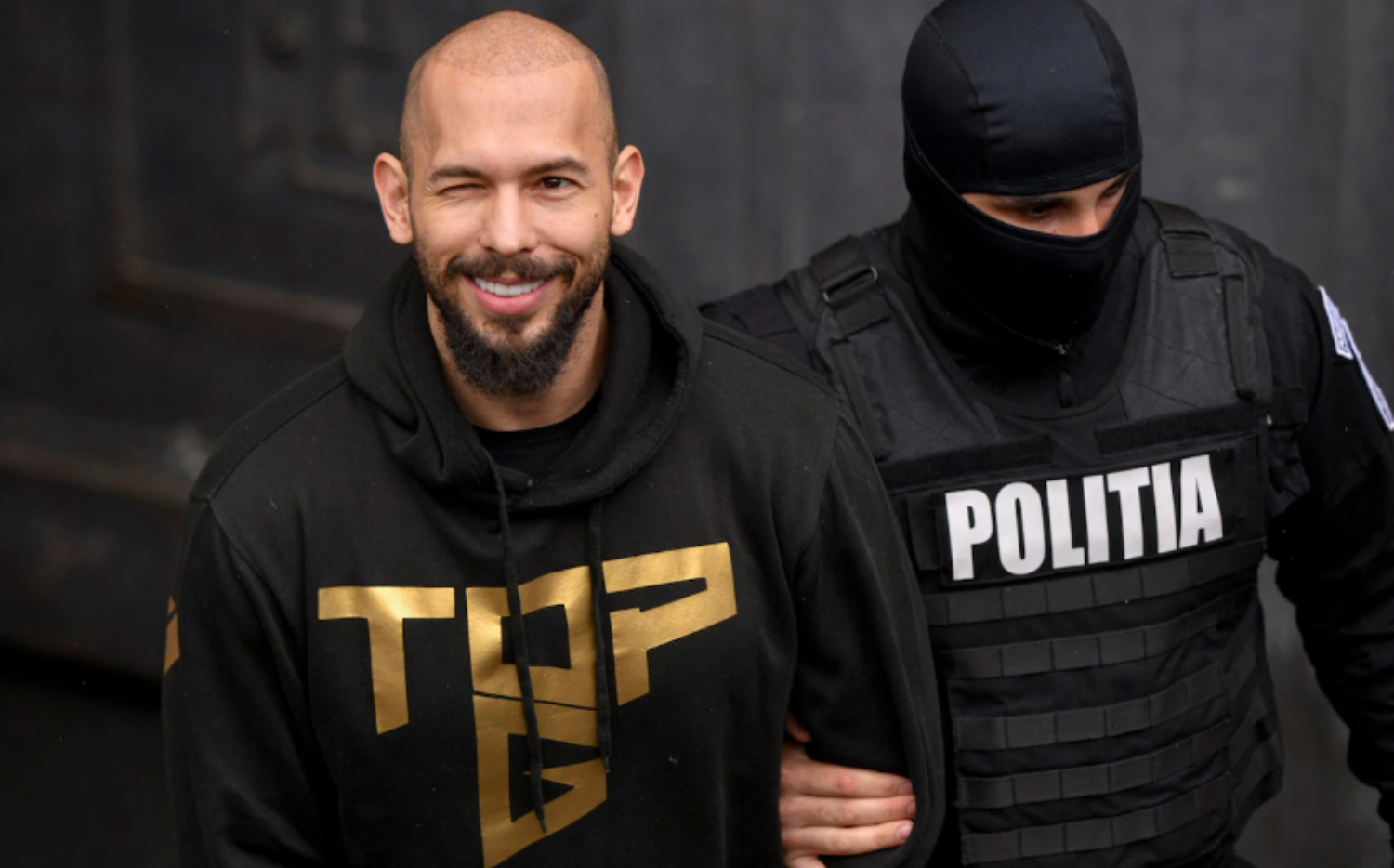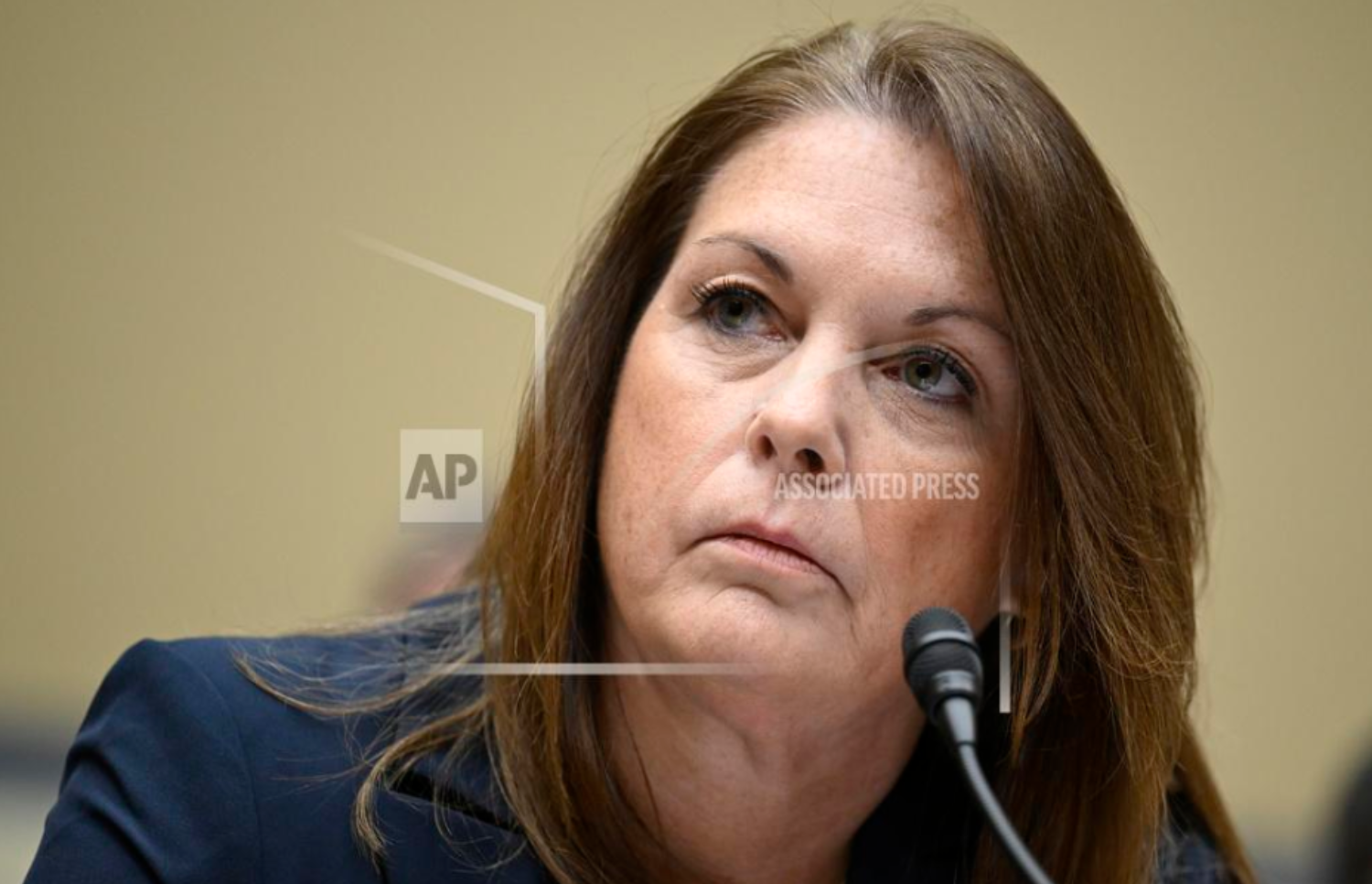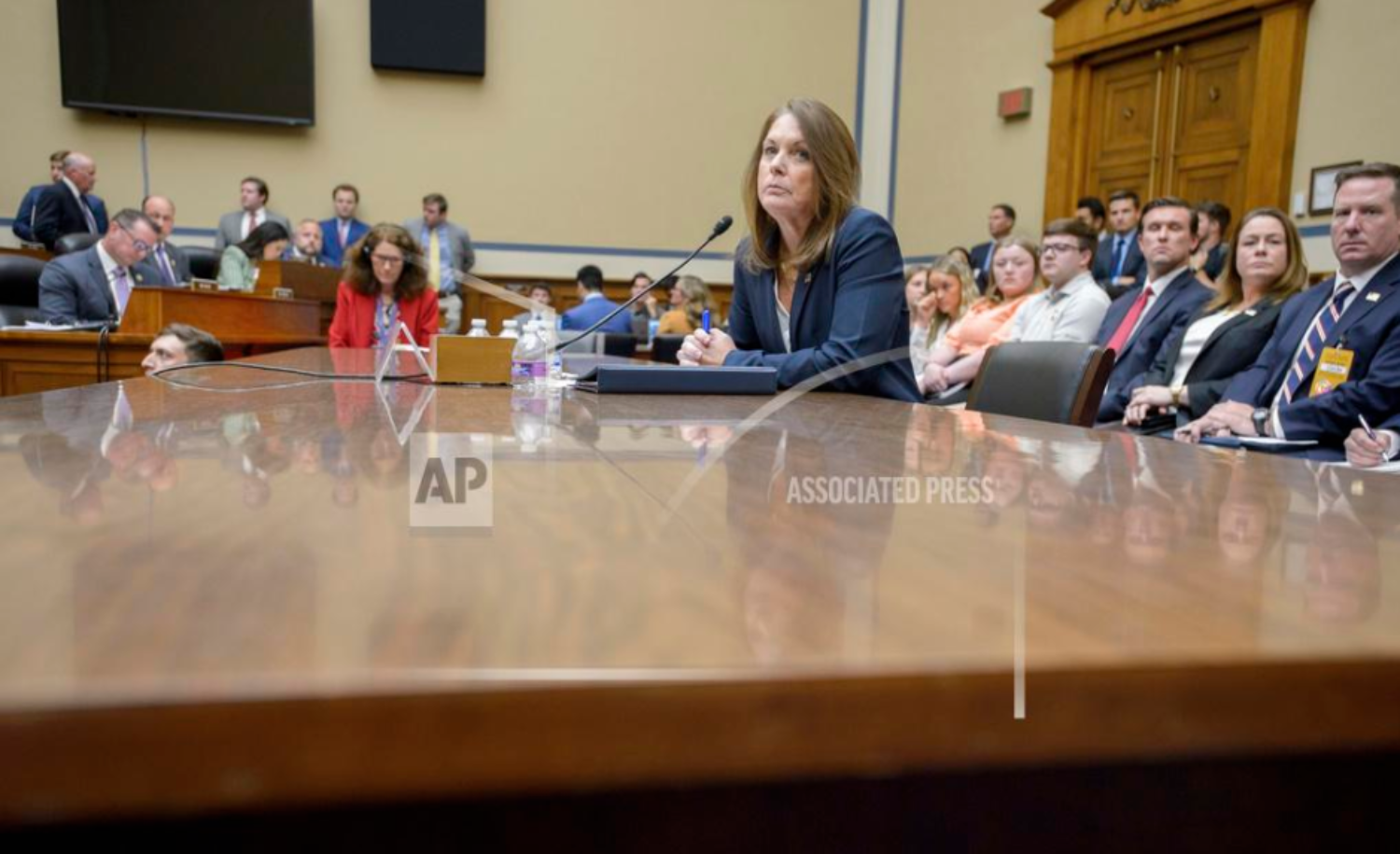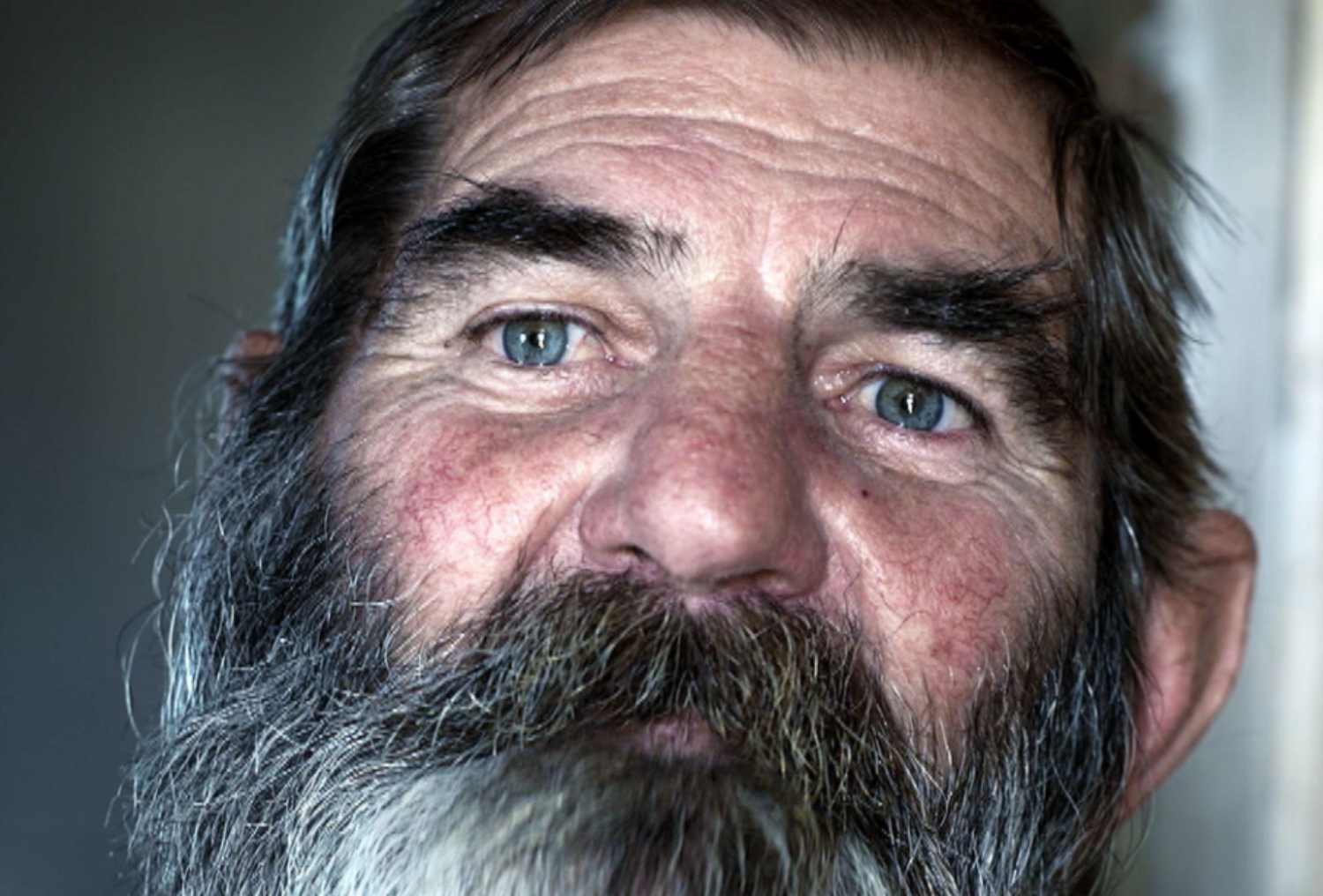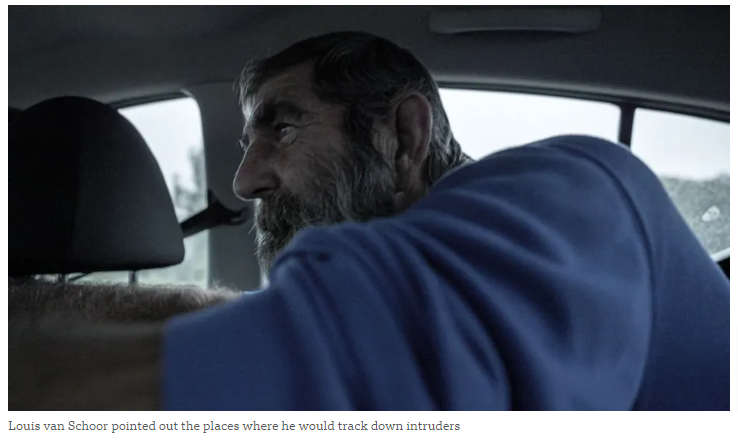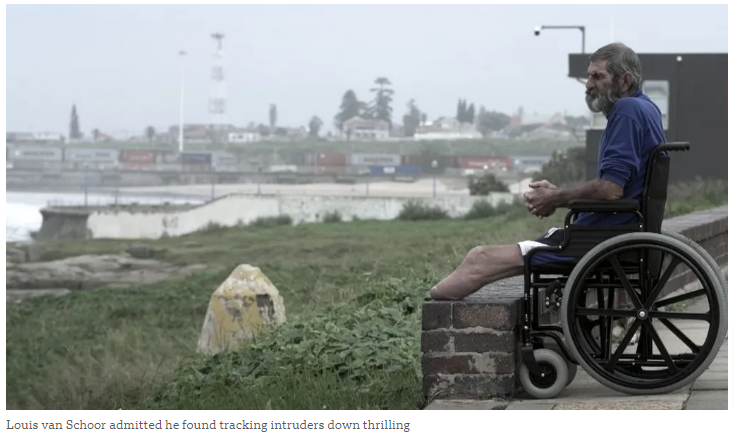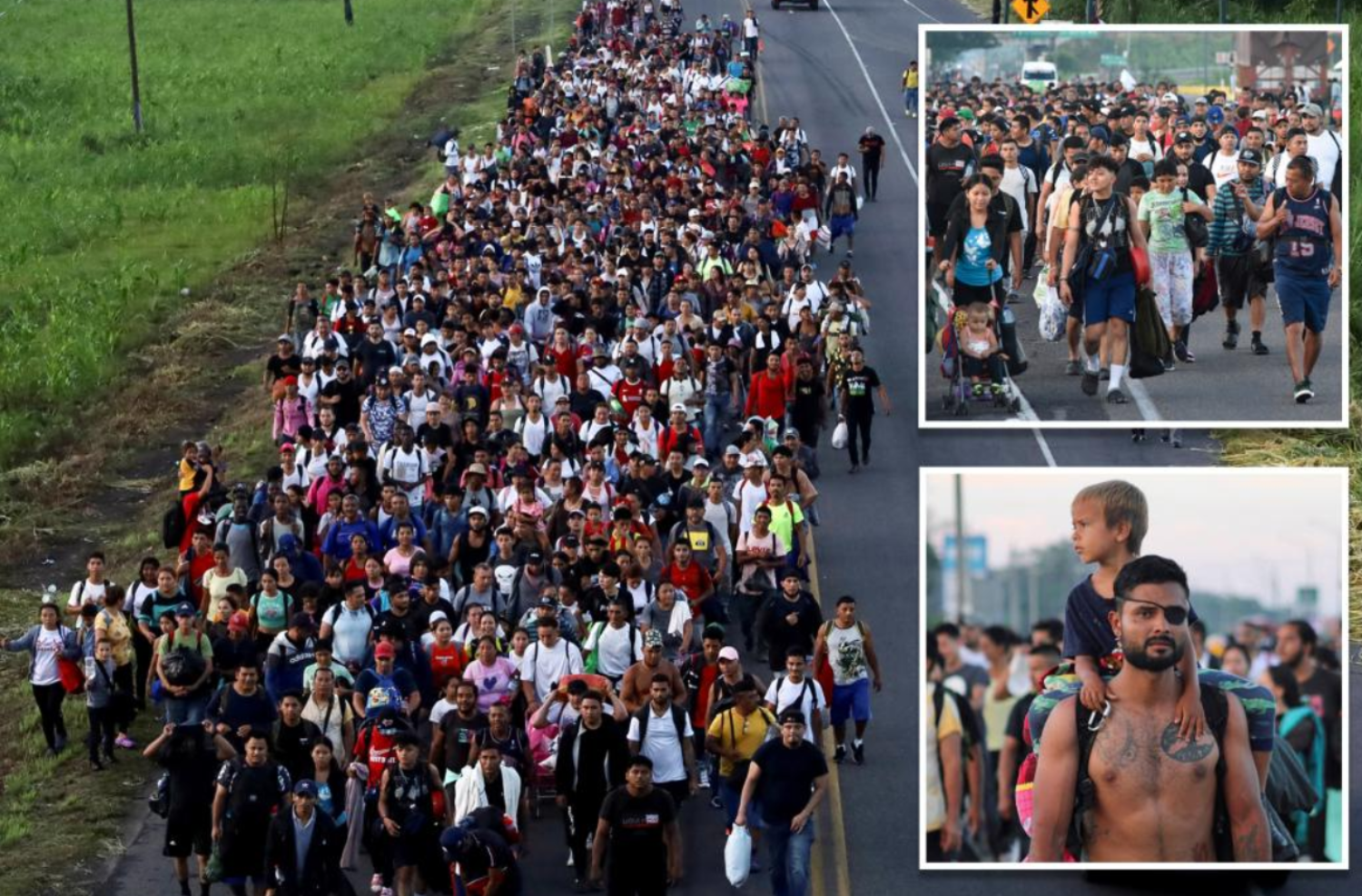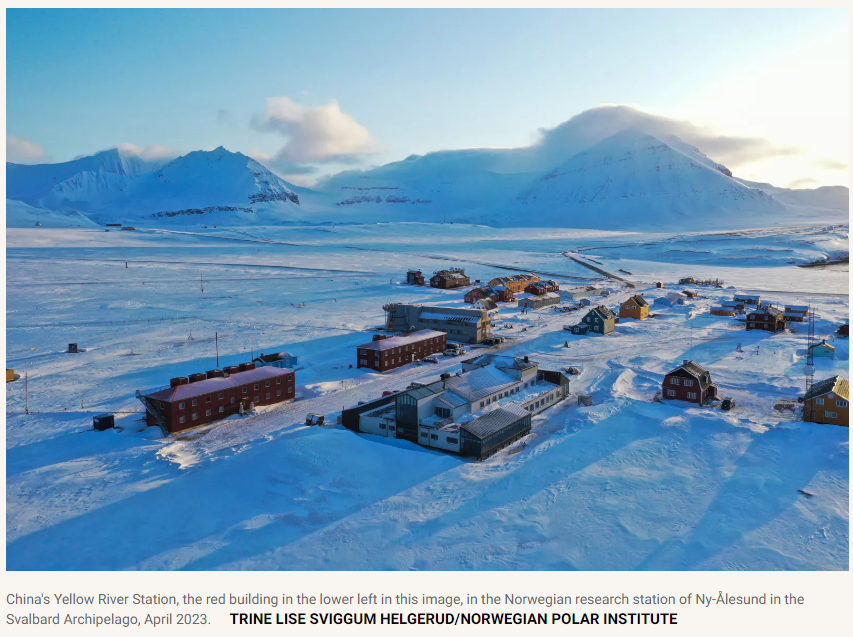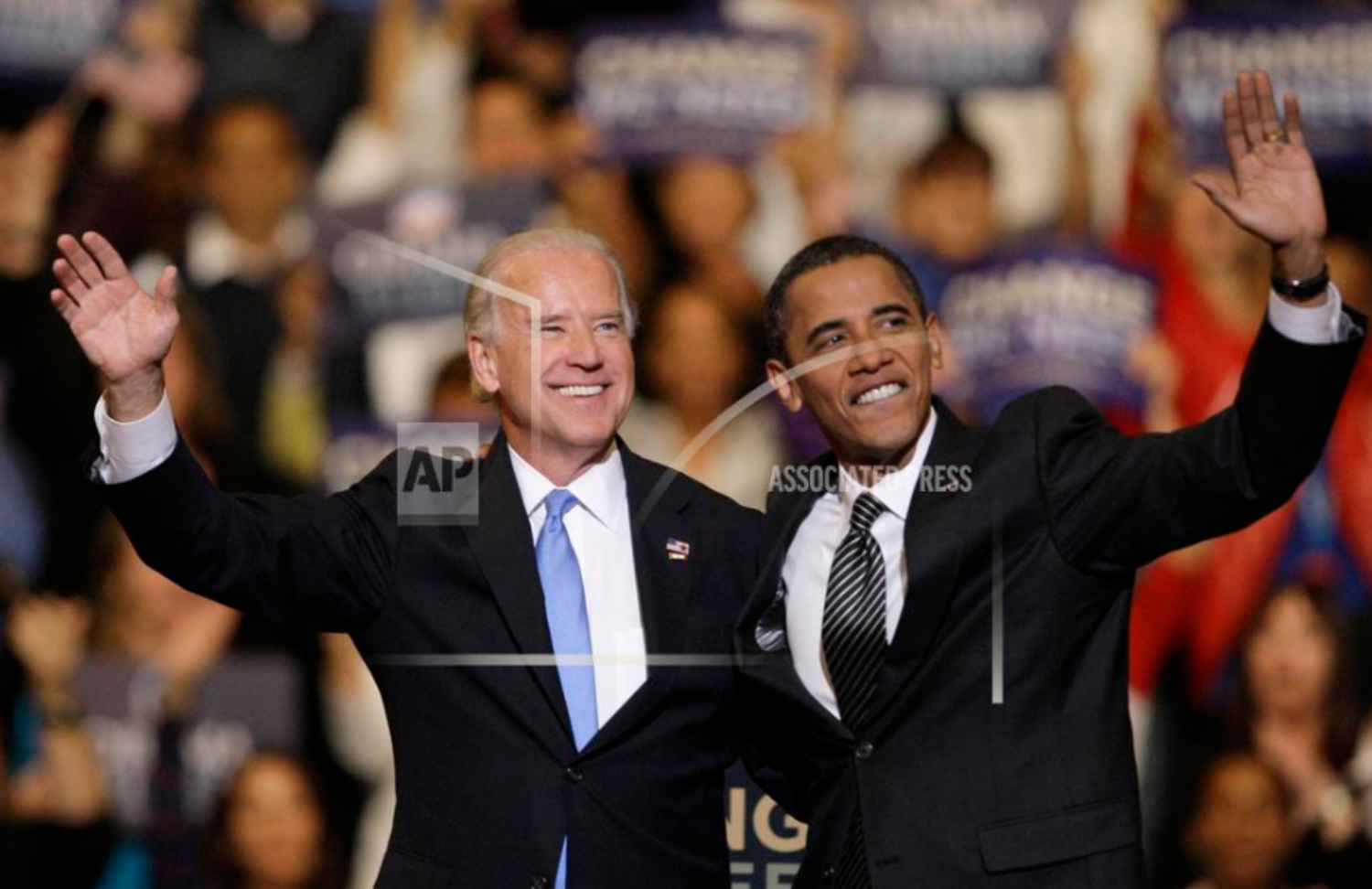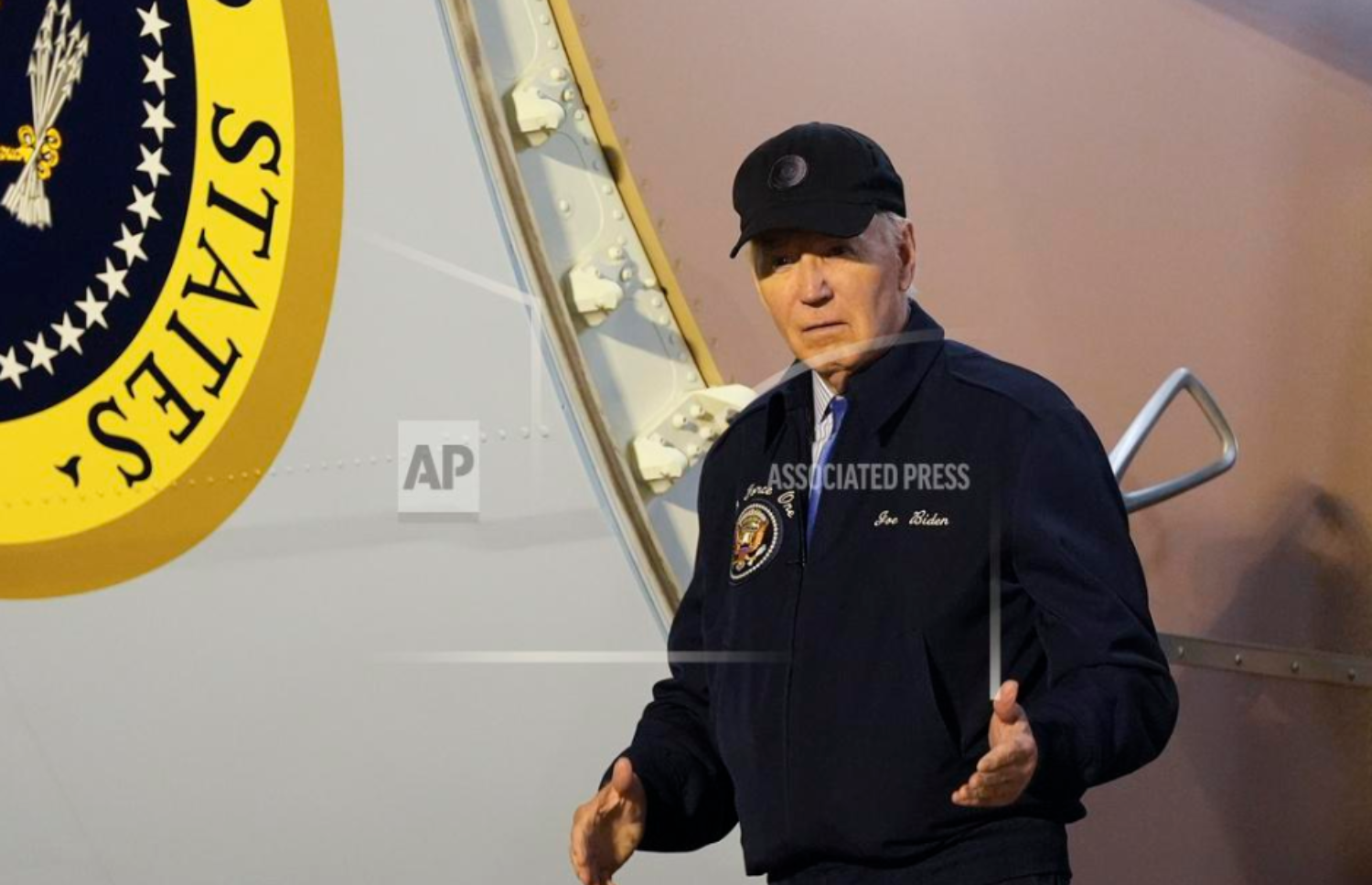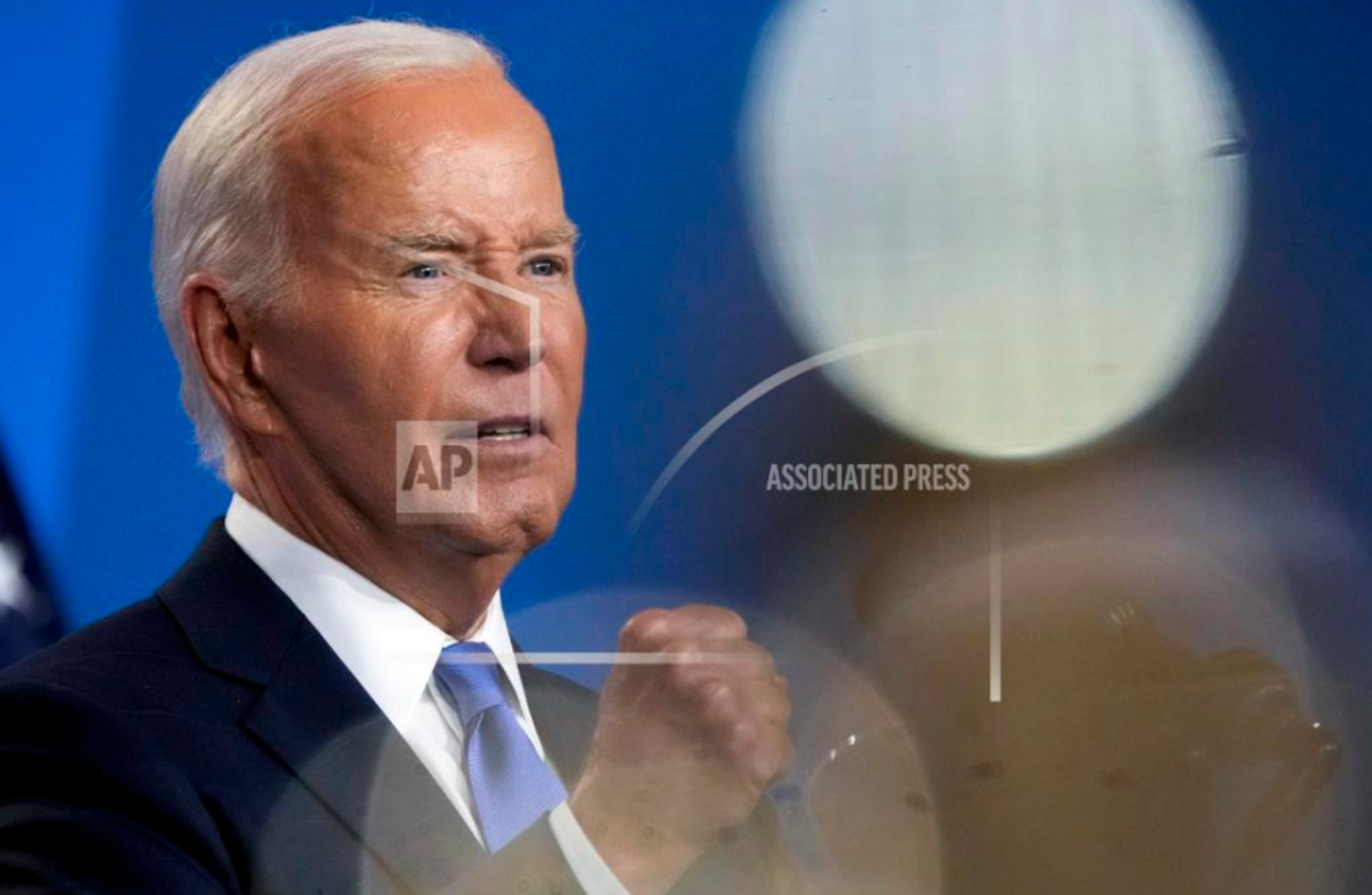-
Posts
10,723 -
Joined
-
Last visited
Content Type
Events
Forums
Downloads
Quizzes
Gallery
Blogs
Everything posted by Social Media
-
In a groundbreaking discovery, scientists have identified a previously unknown source of oxygen production on the seafloor of the North Pacific Ocean. Researchers working in the Clarion-Clipperton Zone (CCZ) found that metallic nodules scattered across the ocean floor can produce oxygen in complete darkness, without the aid of living organisms. This phenomenon, termed "dark oxygen," challenges existing beliefs about the origins of life on Earth and the processes that contribute to oxygen generation. The metallic nodules in question, roughly the size of potatoes, are located on the abyssal plains of the Pacific Ocean, which are flat regions of the seafloor lying between 10,000 and 20,000 feet (3,000 to 6,000 meters) below the surface. These polymetallic nodules are primarily composed of oxides of iron and manganese but also contain valuable metals such as cobalt, nickel, lithium, and rare earth elements like cerium, which are essential for electronics and low-carbon technologies. Andrew Sweetman, a professor and leader of the seafloor ecology and biogeochemistry research group at the Scottish Association for Marine Science (SAMS), led the study. Initially, Sweetman and his colleagues were skeptical of their findings. "When we first got this data, we thought the sensors were faulty, because every study ever done in the deep sea has only seen oxygen being consumed rather than produced," Sweetman said. However, consistent results from their instruments confirmed that they had discovered something unprecedented. Published on July 22 in the journal Nature Geoscience, the study reveals that the small metallic nodules found in the CCZ produce oxygen through a process known as seawater electrolysis. In this process, seawater splits into oxygen and hydrogen in the presence of an electric charge. The charge likely originates from the difference in electric potential between metal ions within the nodules, causing a redistribution of electrons. The implications of this discovery are profound. Until now, scientists believed that Earth's oxygen was naturally produced primarily through photosynthesis and, to a lesser extent, through the oxidation of ammonia—though the latter process produces minimal amounts that are quickly consumed. The detection of oxygen production 13,000 feet (4,000 meters) below the surface, in the absence of light, necessitates a reassessment of our understanding of oxygen generation and the conditions that may have facilitated the emergence of aerobic life on Earth approximately 3.7 billion years ago. "For aerobic life to begin on the planet, there has to be oxygen, and our understanding has been that Earth's oxygen supply began with photosynthetic organisms," Sweetman explained. "But we now know that there is oxygen produced in the deep sea, where there is no light. I think we therefore need to revisit questions like: where could aerobic life have begun?" The study's findings also raise concerns about the environmental impact of mining polymetallic nodules. These nodules, which may be essential for deep-sea ecosystems due to their oxygen-producing capabilities, are increasingly targeted for their valuable metal content. Sweetman and his team initially set out to evaluate the potential impacts of mining these nodules on the seafloor ecosystem in the CCZ, an area spanning 1.7 million square miles (4.5 million square kilometers) between Hawaii and Mexico. Using special experimental chambers, the team measured oxygen concentrations at multiple locations within the CCZ. Contrary to expectations, which suggested a decline in oxygen levels with increasing depth due to the absence of light and photosynthetic organisms, the data revealed steady oxygen emissions from the seabed. This unexpected finding underscores the potential ecological significance of these nodules and the need for careful consideration of their role before proceeding with mining activities. "Through this discovery, we have generated many unanswered questions, and I think we have a lot to think about in terms of how we mine these nodules, which are effectively batteries in a rock," Sweetman stated. The presence of dark oxygen not only challenges long-held scientific theories but also highlights the need for responsible stewardship of deep-sea resources to preserve the delicate balance of these ecosystems. Credit: Live Science 2024-07-24 Get our Daily Newsletter - Click HERE to subscribe
-
After Joe Biden’s momentous decision on Sunday to step aside from the US presidential race, Democrats rallied to describe him as a selfless American hero. Many echoed his endorsement of Vice President Kamala Harris, creating a wave of momentum for her potential candidacy. Stagnant donations surged immediately, and by Monday afternoon, Harris was likely to have raised more money in a 24-hour period than any other candidate in US history. Biden’s endorsement, along with explicit support from many prominent party figures, positions Harris as a strong favorite, even if she faces opposition. Potential candidates like Michigan Governor Gretchen Whitmer and California Governor Gavin Newsom quickly stated they would not run against her and endorsed her, joining over 100 other elected Democrats. There is a wariness among the Democratic establishment about a chaotic public display at the convention and concerns that Black and female voters could turn away from the party if Harris were denied the nomination. Harris performs slightly better than Biden in match-up polls against Donald Trump. A recent Reuters/Ipsos poll showed them tied at 44%, giving Harris a two-point advantage over Biden in the same poll. Her approval ratings are also slightly higher than Biden's. Her supporters argue that these figures could improve as she is introduced to the public with a unified and excited Democratic party behind her. They highlight her recent record on attacking Trump and her prominent voice on abortion as evidence of her potential as a nimble and energetic campaigner against the Republican candidate. Harris is viewed as a moderate who succeeded in California with a “tough on crime” message before recasting herself as a progressive reformer. The contrast between a 59-year-old former prosecutor, who would be the first woman and the first woman of color elected president, and a 78-year-old convicted criminal provides another source of optimism. Her supporters hope she could shore up Democratic support among younger voters and people of color, who polls show have been drawn to Trump. Another practical advantage for Harris is easier access to Biden’s hefty $240 million war chest and the significant funds pouring in from donors who had suspended their contributions. Vox has highlighted the significant hurdles facing any other candidate not part of Biden's campaign. However, while Harris may be a stronger candidate than Biden, her previous presidential run sputtered out after her support fell into the low single digits. The New York Times described her as “an uneven campaigner who changes her message and tactics to little effect.” While some supporters argue she has become a more effective political communicator and strategist, she struggled to carve out an effective role in the vice-presidency, dealing with a difficult policy portfolio including immigration and the failed voting rights bill. Perhaps the most fundamental challenge for Harris is that she will have to run on Biden’s record. The Republican playbook appears to be linking her to Biden’s record and claiming she failed to warn the public about Biden’s allegedly declining faculties. It remains to be seen if these attacks will work, and Harris's nomination is not yet certain. However, Democrats are significantly more optimistic today. One dominant reaction to Trump’s recent rambling convention speech was that he is confident but also very beatable. As Moira Donegan wrote in an opinion piece on Sunday: “In withdrawing from the presidential race, Biden has given the country a fighting chance to defeat Trump.” Credit: The Guardian 2024-07-24 Get our Daily Newsletter - Click HERE to subscribe
-
A federal judge has dismissed a defamation lawsuit brought against Fox News by Nina Jankowicz, a government official who served on the briefly operational U.S. government Disinformation Governance Board. Jankowicz's lawsuit alleged that Fox News had defamed her multiple times, inciting waves of online attacks and threats following the creation of the board. The Disinformation Governance Board, launched by the Department of Homeland Security, was intended to counter disinformation from foreign sources and misleading information aimed at migrants. However, the board's work was paused in May 2022, just weeks after its inception, and Jankowicz resigned. The board was officially dissolved and its charter rescinded in August 2022. In dismissing Jankowicz's claims, the judge noted that 36 of the 37 statements made on Fox News programs were about the disinformation board itself and not directly about Jankowicz. The judge ruled that the one remaining statement, which showed an image of Jankowicz while discussing the board, was not disinformation. The judge determined that it was a factual statement that accurately reflected the board’s charter and its stated purpose. Fox News responded to the dismissal by stating, "This was a politically motivated lawsuit aimed at silencing free speech and we are pleased with the court’s decision to protect the First Amendment." Jankowicz had alleged that Fox News falsely claimed she intended to censor Americans' speech and wanted to give verified Twitter users, including herself, the power to edit others' tweets. These claims were among those Jankowicz cited as defamatory. The Disinformation Governance Board was initiated by the Department of Homeland Security to address disinformation threats, particularly from Russia, and to combat misleading information circulated by human smugglers targeting migrants at the U.S.-Mexico border. However, the board faced immediate backlash from Republican lawmakers and conservative commentators, who took to social media to demand its disbandment. They labeled the board as an Orwellian entity potentially capable of suppressing free speech. This legal battle occurs in the context of other high-profile defamation cases involving Fox News. In April 2023, Fox News agreed to pay Dominion Voting Systems nearly $800 million to avoid a trial in a lawsuit that would have revealed how the network promoted false claims about the 2020 presidential election. Credit: US News 2024-07-24 Get our Daily Newsletter - Click HERE to subscribe
-
Former President Donald Trump has filed an appeal against a $454 million civil fraud judgment issued by a New York court, arguing that the penalty is both excessive and unconstitutional. The appeal, lodged on Monday, challenges the ruling of New York State Judge Arthur Engoron. In February, Engoron found Trump, his sons Donald Trump Jr. and Eric Trump, and their real estate business liable for fraud, stating they had inflated Trump’s wealth on financial statements to secure favorable loans from banks and insurers. Trump’s legal team argued in their appeal, "The award of $464 million in a case with no victims, no proven injuries, and no losses is not remotely defensible." They noted that an additional $10 million of the judgment pertained to other defendants in the case. Engoron’s ruling stated that Trump and his company had gained $354 million through fraudulent means and ordered them to reimburse the state with an additional $100 million in interest. Additionally, the judgment barred Trump from conducting any business in New York for three years. The appeal asserted that the judgment was both excessive and unconstitutional, contending that it fell outside the statute of limitations. Trump’s attorneys wrote, "Applying the correct statute of limitations eliminates $350,980,057 of the $464,576,229 judgment for the Appellants bound by the Tolling Agreement, and it eliminates all of the judgment for those not bound by the Tolling Agreement, including the Trust and the individual Appellant." Furthermore, the appeal argued that the monetary award was a punitive measure imposed for retributive and deterrent purposes. Trump’s lawyers described the judgment as "grossly disproportional under the Eighth Amendment's Excessive Fines Clause and grossly excessive under the Due Process Clauses." Christopher Kise, one of Trump’s attorneys, criticized the judgment, asserting that Judge Engoron "willingly allowed a reckless, politically motivated attorney general to meddle in lawful, private, and mutually profitable transactions." Kise claimed that the allegations by New York Attorney General Letitia James revolved around deals with "no victims and no losses" and were drawn from outside the statute of limitations. Kise added, "Such an outrageous miscarriage of justice is profoundly un-American, and a complete reversal is the only means available to restore public confidence in the integrity of the New York judicial system." A spokesperson for Attorney General James responded to the appeal, stating, "Once again, the defendants are raising arguments that they were already sanctioned and fined for. We won this case based on the facts and the law, and we are confident we will prevail on appeal." The appeals court is expected to take up the case as early as September. Credit: UPI 2024-07-24 Get our Daily Newsletter - Click HERE to subscribe
-
As the threat of a larger conflict with Russia intensifies, several European nations are turning to conscription to bolster their defenses. This shift, once unthinkable, is a direct response to Russia's invasion of Ukraine and the subsequent increase in geopolitical tensions. Before Russia's full-scale invasion of Ukraine, many believed that a major war in Europe was unlikely. However, the conflict has prompted a reevaluation of military strategies and the need for conscription. Robert Hamilton, head of Eurasia research at the Foreign Policy Research Institute, explained, “We are coming to the realization that we may have to adjust the way we mobilize for war and adjust the way we produce military equipment and recruit and train personnel.” Hamilton, who served as a US Army officer for 30 years, noted the gravity of the situation: “It is tragically true that here we are, in 2024, and we are grappling with the questions of how to mobilize millions of people to be thrown into a meatgrinder of a war potentially, but this is where Russia has put us.” General Wesley Clark, former NATO Supreme Allied Commander Europe, emphasized the urgency of the situation, stating that the invasion has forced NATO to rebuild its defenses and consider conscription as a key component of its strategy. “We’ve now got a war in Europe that we never thought we would see again,” said Clark, who led NATO forces during the Kosovo War. He added, “Whether this is a new Cold War or an emerging hot war is unclear, but it’s a very imminent warning to NATO that we’ve got to rebuild our defenses.” According to Clark, these efforts include conscription. Countries like Latvia have already reintroduced compulsory military service. As of January 1, 2024, Latvian male citizens are required to enlist within 12 months of turning 18 or upon graduation. Arturs Pīlācis, a 20-year-old student, shared his perspective on the reintroduction of conscription in Latvia: “At first there was a lot of pushback. But ultimately, the need for a state defense service was clear. There wasn’t really an option where we can stand by and think things will go on as they were before because of the unprovoked aggression in Ukraine.” Norway, which has mandatory conscription for both men and women, announced plans to nearly double its defense budget and increase the number of conscripted soldiers, employees, and reservists. Prime Minister Jonas Gahr Støre remarked, “We need a defense that is fit for purpose in the emerging security environment.” Germany, historically averse to militarization, is also reconsidering conscription. In another first since the Cold War, Germany updated its plan should conflict erupt in Europe, and Defense Minister Boris Pistorius presented a proposal for voluntary military service. “We must be ready for war by 2029,” Pistorius declared. Sean Monaghan, a visiting fellow in the Europe, Russia, and Eurasia Program at the Center for Strategic and International Studies, highlighted the significance of this shift: “We are seeing the debate now raging. And that’s the first step. This doesn’t happen overnight, it’s a big mental shift.” Opinions on conscription vary across Europe. In Lithuania, where compulsory military service was reintroduced in 2015, some students support military initiatives without necessarily favoring conscription. Paulius Vaitiekus, president of Lithuania’s National Students’ Union, noted, “Since the country reintroduced compulsory military service in 2015 due to a changed geopolitical situation, about 3,500 to 4,000 Lithuanians between the ages of 18 and 26 are enlisted each year for a period of nine months.” Vaitiekus also mentioned that students have launched initiatives to send supplies to the Ukrainian frontlines. He observed, “There was a shift in the mindset of the youth towards being more active, although not necessarily through conscripting.” NATO's new goal of having 300,000 personnel ready for rapid activation faces challenges, with European allies needing to find new ways to generate military personnel. While NATO has stated it has already met that goal, the EU has said its members would struggle. NATO relies on American forces to meet its target. European allies need to find new ways to generate personnel. Something has to give here. Another problem is that that target would only allow NATO to fight a relatively short conflict of up to six months, Monaghan added. One possible solution is to look at models like Finland's, which maintains a large reserve force that can be quickly integrated into a small active military. Finland has the capacity to activate more than 900,000 reservists, with 280,000 military personnel being ready to respond immediately if needed. However, during peacetime, the Finnish Defence Forces employs only about 13,000 people, including civilian staff. Hamilton, of the Foreign Policy Research Institute, noted, “Finland is a good example as its reserve force can be integrated into a very small active force.” Historically, Finland was “wedged” between NATO and the Soviet Union, aligned with neither, so needed to be able to defend itself alone. Norway and Sweden, NATO’s newest member, have similar models, both maintaining significant numbers of reservists, though not as many as Finland. Sweden, where conscription is now also gender-neutral, called up around 7,000 individuals in 2024. The number will rise to 8,000 in 2025, according to the Swedish Armed Forces. Marinette Nyh Radebo, communications manager at the agency that helps test recruits and reports to the Ministry of Defense, explained the cultural shift in Sweden: “Since the start of the war in Ukraine, what we see is that both knowledge and the attitude have changed. Sweden has had conscription since 1901 so it’s really part of our culture in a way.” When the conscription was activated again, in the beginning, we said that conscription is good for your CV, for applying for a new job for example,” Radebo said. “But today our communication is more like, this is a duty that you have to do for Sweden.” NATO has significantly transformed its collective defense since Russia's actions in Ukraine. The alliance has put in place comprehensive defense plans and increased its readiness. Farah Dakhlallah, a NATO spokesperson, stated, “Since 2014, NATO has undergone the most significant transformation in our collective defense in a generation. We have put in place the most comprehensive defense plans since the Cold War, with currently more than 500,000 troops at high readiness.” However, questions remain about NATO's ability to sustain a prolonged conflict. While NATO allies “are definitely ready to fight tonight,” there is still a question of whether they are ready for a protracted war such as that in Ukraine, Monaghan said, pointing out there is still work to be done in a number of areas. Those include industrial capacity, defense spending and societal resilience – where the question of conscription would come in. The way military personnel are recruited and trained is a decision for individual nations, Dakhlallah said, adding: “Around a third of NATO members have some form of compulsory military service.” Some allies are weighing up conscription. However as an alliance we do not prescribe mandatory military service. The important thing is that allies continue to have capable armed forces to protect our territory and our populations.” The geopolitical landscape has changed drastically, and NATO allies must adapt to these new threats. The situation is further complicated by Russia's hybrid warfare tactics, including cyberattacks, disinformation, and election interference. Monaghan noted, “In addition to the fighting in Ukraine, Russia has also launched a hybrid war across Europe, experts say, involving attacks on infrastructure, cyberattacks, disinformation, sabotage, election interference and the weaponization of migration. That has only become more aggressive. All of which is to say NATO allies face a very different geopolitical situation than they did over the last couple of decades.” The upcoming US presidential election could also impact NATO's strategy. Former President Donald Trump has expressed views that could alter the alliance's approach to defense spending and cooperation. Trump has said he would encourage Russia to do “whatever the hell they want” to any NATO country that doesn’t meet the bloc’s defense spending guidelines. General Clark highlighted the need for democratic societies to prepare for war, even if it is against their natural inclinations. He drew parallels to the “Greatest Generation” of World War II, suggesting that today's young people may face similar responsibilities. Clark stated, “I think there is a very good understanding among the military leaders of NATO that they must cooperate, and there is a desire to do that. This year saw World War II veterans gather for D-Day commemorations, some possibly for the last time. Their descendants may now have to take on the kind of responsibility that it was hoped would not be needed again.” Clark continued, “I think young people in Europe and the US will come to realize that this generation, like the generation that fought WWII, it didn’t ask to be the ‘Greatest Generation,’ but the circumstances thrust that burden on them. In democracies, we don’t like to prepare for war, we don’t want to think about these things. However, I think people will respond to the circumstances that they see.” As Europe grapples with the threat of a wider war with Russia, conscription is becoming a more viable option for many countries. The changing security environment requires nations to rethink their defense strategies and prepare for potential large-scale conflicts. Credit: CNN 2024-07-24 Get our Daily Newsletter - Click HERE to subscribe
-
Violence against women and girls in England and Wales has reached alarming levels, described by police as an "epidemic." Influencers like Andrew Tate are being blamed for promoting misogynistic attitudes among young boys, contributing to a surge in sex offenses. The National Police Chiefs Council released a report revealing over a million violent crimes against women and children within a year, equating to nearly 3,000 daily incidents. Deputy Chief Constable Maggie Blyth, the national lead for policing violence against women and girls, expressed deep concern over the influence of figures like Tate. She referred to his impact as "quite terrifying," emphasizing the urgent need to address the radicalization of young boys online. The report revealed that the average age of suspects in sexual abuse cases is just 15, while victims are typically around 13. The rise in violent crimes against women and children has escalated by 37 percent over four years, with an estimated two million women becoming victims of violent crime annually. The report cautioned that these numbers likely underestimate the true scope, as much crime remains unreported. Violence against women and girls accounted for almost one in five police-recorded crimes in England and Wales, excluding fraud. Senior police officers are collaborating with counter-terrorism teams to address the risk of online radicalization among young men. Blyth highlighted that the scale of violence had reached "staggering levels" and is worsening, pointing out that one in 12 women are victims. She acknowledged that police-recorded data represents only the "tip of the iceberg," suggesting that actual victim and perpetrator numbers are much higher. The report criticized the criminal justice system as "under-resourced and under-performing," overwhelmed and in dire need of government intervention. Police chiefs urged the new Labour administration to allocate more funding. However, Blyth emphasized that law enforcement alone cannot resolve the issue. The NPCC estimated that one in 20 adults in England and Wales perpetrate such violence annually, with real figures likely even higher. They noted an increase in arrests for domestic abuse-related offenses by more than 22 percent within a year, with one in every six murders linked to domestic abuse. Women's Aid described the report's findings as "alarming," warning that actual figures are "much larger than the data shows." Clare Kelly, associate head of policy at the NSPCC, called the scale of offending against girls "frightening," urging a society-wide response. She stressed the responsibility of tech companies to prevent the spread of misogynistic content, calling for safety measures to stop grooming and abuse from proliferating on their platforms. The situation demands a comprehensive societal approach, integrating efforts from law enforcement, government, and tech industries to combat this pervasive issue. Credit: Daily Telegraph 2024-07-24 Get our Daily Newsletter - Click HERE to subscribe
-
Secret Service director steps down amid resignation calls after Trump assassination attempt. WASHINGTON — U.S. Secret Service Director Kimberly Cheatle has stepped down after widespread calls by lawmakers for her to resign following the attempted assassination attempt on former President Donald Trump on July 13, three sources told NBC News. An official announcement on her resignation is expected later this morning, two law enforcement sources said. Credit: NBC 2024-07-23 Get our Daily Newsletter - Click HERE to subscribe
-
In a rare display of bipartisanship, lawmakers from both sides of the aisle have called for Secret Service Director Kimberly Cheatle to resign following an assassination attempt on former President Donald Trump. This demand came during and after a contentious House Oversight Committee hearing on Monday, which scrutinized the Secret Service's security measures before a rally in Butler, Pennsylvania, on July 13. The event, which led to the attempt on Trump's life, resulted in one fatality and three injuries, including Trump himself. The hearing proved to be particularly challenging for Cheatle, as she faced harsh criticism and ridicule from lawmakers for her responses and the limited information provided by her agency. Both Republican and Democratic committee members expressed their frustration with Cheatle's handling of the situation and the lack of transparency from the Secret Service. James Comer and Jamie Raskin, the leading Republican and Democrat on the committee, respectively, issued a letter to Cheatle after the hearing, urging her to step down. The letter stated, "In the middle of a presidential election, the Committee and the American people demand serious institutional accountability and transparency that you are not providing. We call on you to resign as Director as a first step to allowing new leadership to swiftly address this crisis and rebuild the trust of a truly concerned Congress and the American people." During the hearing, Cheatle accepted responsibility for the security lapses and acknowledged that the Butler incident represented "the most significant operational failure of the Secret Service in decades." However, her refusal to answer many questions directly, citing the ongoing investigation, left many lawmakers dissatisfied. Cheatle also defended her position, asserting that she remained "the best person to lead the Secret Service at this time." Oversight Committee Chairman James Comer expressed his disappointment, saying, "The American people have questions, [and] they deserve answers. You were required to provide answers and, ma'am, you did not." The hearing, which lasted nearly six hours, was marked by intense exchanges, with lawmakers using strong language, shouting, and questioning Cheatle's honesty and competence. Florida Congresswoman Anna Paulina Luna voiced her discontent, stating, "I'm disgusted by your performance." Ohio Republican Jim Jordan, a Trump ally, echoed these sentiments, accusing Cheatle of evading basic questions and cutting corners in protecting Trump. South Carolina Republican Nancy Mace also expressed her frustration, accusing Cheatle of dishonesty and dodging questions. Georgia's Marjorie Taylor Greene was particularly vocal, calling Cheatle a "total failure" and demanding her resignation. Cheatle admitted that no Secret Service officers or employees had been disciplined for the Butler incident and announced that a preliminary report on the shooting would be released within 60 days. This timeline was met with skepticism by committee members, including New York Democrat Alexandria Ocasio-Cortez, who argued that such a delay was unacceptable during a tense election season. Ocasio-Cortez emphasized the importance of accountability and transparency, stating, "This is not theatre, this is not about jockeying, this is about the safety of some of the most highly targeted and valued targets internationally and domestically. There needs to be answers. We need to make policy decisions. Without that, we're flying blind." While there was a general consensus regarding Cheatle's future, there were some points of contention between Republicans and Democrats. Several Republicans suggested that Cheatle's appointment was influenced by diversity, equity, and inclusion (DEI) initiatives and questioned the capabilities of female agents assigned to Trump's security detail. Other representatives, such as Lauren Boebert and Anna Paulina Luna, hinted at conspiracy theories circulating online. Florida Republican Michael Waltz criticized Cheatle for not addressing the situation more proactively, saying, "I would have fired you just by how you handled this, because you should have been the first to the mics." Eyewitnesses to the Butler shooting also expressed their dissatisfaction with Cheatle's responses. Jean Vincent, a Butler resident, stated, "She's trying to pass the buck. I'm actually amazed at how insufficient her answers were. She needs to be held accountable for her total lack of competency... she put our lives at risk and needs to take responsibility." Former US Marine Teresa Wilson echoed these sentiments, calling Cheatle's responses evasive and stating, "The only acceptable thing she could have done is take responsibility and step down. All the rest is noise." As the investigation into the Butler incident continues, the pressure on Cheatle to resign remains high. The bipartisan call for her resignation underscores the urgency for accountability and transparency within the Secret Service, especially during a critical election period. Credit: BBC 2024-07-23 Get our Daily Newsletter - Click HERE to subscribe
-
Amber Luke, renowned as Australia’s most tattooed woman, has captivated the world with her striking appearance and unique body art. Known on social media as the "Blue Eyes White Dragon," Amber has undergone a dramatic transformation with 250 tattoos, numerous piercings, and body modifications. Her journey into the realm of extreme body art reached a peak when she decided to have her eyeballs tattooed, an experience that left her temporarily blind. In a recent appearance on The Apollo Show podcast, Amber delved into the motivations and experiences behind her decision to tattoo her eyes. At just 22 years old, she underwent the excruciating procedure that rendered her sightless for several weeks. Reflecting on the experience, Amber expressed that the act of tattooing her eyes was about reclaiming something personal. "It was about taking back something that was never really mine in the first place," she shared, emphasizing the deeper meaning behind her bold choice. Despite the initial complications and severe pain, Amber's perspective on the experience is surprisingly positive. She recently traveled to Brazil to have her eyeballs re-inked, describing the process as ultimately empowering. "I wanted to own that and say: 'You know what? I may have gone blind for three weeks, but it turned out to be quite an okay experience,'" she recounted to podcast host Adam Manikis. Her resolve to redefine the experience highlights her determination to control the narrative around her body art. Amber’s description of the procedure offers insight into the intensity of the experience. She explained that the process involves injecting ink into the eyeball with a one millimeter syringe at two precise points. “My eye is a solid blue … if it’s done correctly you feel no pain whatsoever,” she stated. However, her first attempt at eyeball tattooing was far from painless. “It was the most intense, brutal pain of my life,” Amber recalled, likening the sensation to having “10 shards of glass” in her eye for three weeks. The transformation of Amber Luke is not only a testament to her commitment to body art but also a reflection of the growing acceptance and fascination with extreme modifications within the tattoo community. The Australian Tattoo Expo, where Amber recently appeared, plays a significant role in supporting and expanding this vibrant industry. Held annually in cities across Australia for the past 15 years, the event attracts around 60,000 attendees each year. It serves as a platform for enthusiasts to connect with industry leaders, receive tattoos from renowned artists, and engage with both pioneers and up-and-coming talents in the field. A spokesperson for the Tattoo Expo emphasized the event's dedication to the tattoo industry and its community. “It’s a great chance to get tattooed by tattoo industry titans, form lasting connections, and chat with both the pioneers and up-and-comers of the tattoo community,” they explained. For Amber Luke, the expo represents not just an opportunity to showcase her unique art but also a chance to inspire others who share her passion for self-expression through body modification. Credit: NYP 2024-07-23 Get our Daily Newsletter - Click HERE to subscribe
-
Donald Trump has achieved a notable legal victory in his ongoing libel lawsuit against the Pulitzer Prize Board, as a Florida judge has rejected efforts by the board to have the case dismissed. This lawsuit, filed in 2022, centers on a series of reports published by The New York Times and The Washington Post concerning alleged connections between Trump's 2016 campaign and Russia. The ruling by Senior Judge Robert Pegg marks a significant development in the case, which challenges the Pulitzer Prize Board's decision to uphold the 2018 awards for national reporting given to these newspapers. Judge Pegg’s 14-page ruling, issued on Saturday, dismissed the Pulitzer Prize Board’s argument that their decision to award the national reporting prizes to The New York Times and The Washington Post was merely a matter of "pure opinion" rather than a statement of fact. The lawsuit does not directly contest the content of the articles or the initial award of the Pulitzer Prizes but instead focuses on the board’s decision in 2022 to reaffirm these awards despite Trump's persistent claims of inaccuracies and falsehoods in the reporting. Trump's legal strategy targets the Pulitzer Board’s 2022 statement, which came in response to his allegations that the Times and Post's reporting was flawed and contradicted by Special Counsel Robert Mueller’s investigation. Florida law imposes a two-year statute of limitations for defamation cases, leading Trump to concentrate on the board’s more recent actions rather than the original reporting. In his post on the Trump Social platform, Trump praised Judge Pegg’s decision, asserting that the ruling was a powerful rejection of the Pulitzer Board's attempt to dismiss his defamation lawsuit. Trump described the judge's decision as confirming that the Pulitzer Prizes were awarded to "Fake News Stories about the Russia, Russia, Russia Hoax by The Failing New York Times and The Washington Compost." He claimed that Pegg's ruling indicated Mueller's report debunked the articles by the Times and Post, though the judge's decision only mentioned that Trump alleged the special counsel's findings demonstrated inaccuracies in the newspapers' reporting. Judge Pegg’s ruling implies dissatisfaction with the Pulitzer Board’s review process, suggesting that the board’s reaffirmation of the awards did not adequately address whether the "independent reviewers" verified the anonymous sources critical to the Russia collusion narrative. Pegg criticized the board for leaving readers uncertain about the thoroughness of the review. Mueller’s report, released in March 2019, concluded that there was no evidence of a conspiracy or coordination between the Trump Campaign and the Russian government regarding election interference. Additionally, Judge Pegg dismissed a motion by several defendants seeking to be removed from the case on the grounds that they lacked sufficient ties to Florida, allowing the lawsuit to proceed to the discovery phase. This phase will enable Trump’s legal team to question Pulitzer board members about the discussions and reviews related to the 2018 awards and to uncover who conducted the reviews that led to the reaffirmation of the Times and Post’s reporting. The Pulitzer Prize Board and their attorneys did not respond immediately to requests for comment on the rulings. The Philadelphia-based law firm Ballard Spahr, representing the board members, also handles legal matters for other news outlets, including POLITICO. Trump’s lawsuit names board members and administrative staff from the time of the 2018 awards. Filed in December 2022 in Okeechobee County, Florida, the case is expected to continue as Trump’s attorneys prepare for the discovery process. In his social media post, Trump reiterated his calls for changes to the nation’s libel laws, criticizing the landmark New York Times v. Sullivan case as outdated and reflective of a media landscape he views as radical and biased. Credit: Politico 2024-07-23 Get our Daily Newsletter - Click HERE to subscribe
-
Louis van Schoor, a South African security guard and convicted murderer, has confessed to the BBC that his killing spree, which targeted dozens of black men during apartheid, was sanctioned by the police. Van Schoor, who has been interviewed by BBC Africa Eye over the past four years, insists that others should share the blame for his actions. Yet, in his conversations with the BBC, he has revealed chilling details that raise serious questions about his early release from prison. The stark reality of standing in the bedroom of a convicted killer is unsettling. Van Schoor’s room is meticulously kept, with an immaculately neat bed and the heavy odor of cigarettes lingering in the air, their stubs piled high in an ashtray. Strips of sticky paper hang from the ceiling, writhing with trapped and dying flies. Known as the “Apartheid Killer,” van Schoor has lost his teeth and suffers from poor health. After a heart attack, both his legs were amputated, leaving him in a wheelchair with painful scars. Remarkably, during the procedure, he requested an epidural instead of general anesthesia so he could watch his legs being removed. "I was curious," he said, chuckling. "I saw them cutting… they sawed through the bone." In his discussions with the BBC, van Schoor sought to convince the public that he is "not the monster that people say I am." However, his detailed and enthusiastic description of his legs being amputated did little to soften his image. Between 1986 and 1989, under South Africa's racist apartheid system, van Schoor shot and killed at least 39 people, all of whom were black. The youngest victim was just 12 years old. These killings occurred in East London, a city in South Africa’s Eastern Cape, where van Schoor was employed as a security guard with a contract to protect up to 70% of white-owned businesses, including restaurants, shops, factories, and schools. He has long maintained that every person he killed was a "criminal" caught red-handed while breaking into these buildings. "He was a kind of vigilante killer. He was a Dirty Harry character," says Isa Jacobson, a South African journalist and filmmaker who has spent 20 years investigating van Schoor’s case. "These were intruders who were, in a lot of cases, pretty desperate. Digging through bins, maybe stealing some food… petty criminals." Van Schoor’s killings, sometimes several in a single night, struck terror into the black community of East London. Stories spread of a bearded man—nicknamed "whiskers" in the Xhosa language—who made people disappear at night. However, his shootings were not clandestine. Every killing between 1986 and 1989 was reported to the police by van Schoor himself. The release of anti-apartheid leader Nelson Mandela in 1990 marked the beginning of the end for van Schoor’s impunity. As South Africa underwent significant changes, pressure from activists and journalists led to van Schoor’s arrest in 1991. His trial, one of the largest murder trials in South African history, involved dozens of witnesses and thousands of pages of forensic evidence. Despite killing at least 39 people, van Schoor was only convicted of seven murders due to the collapse of much of the case against him in court. He served just 12 years in prison. The other 32 killings remain classified as "justifiable homicides" by the police. Apartheid-era laws permitted the use of lethal force against intruders if they resisted arrest or fled. Van Schoor relied heavily on this defense to maintain his innocence, claiming his victims were running away when he shot them. The BBC’s investigation into van Schoor scrutinized evidence underlying these "justifiable" shootings, delving deep into police reports, autopsies, and witness statements. Jacobson’s research uncovered witness statements from people who survived van Schoor’s attacks, contradicting his claims that they were fleeing when shot. Multiple accounts described being shot with their hands up or being toyed with by van Schoor, who would ask if they preferred to be arrested or shot before shooting them. Armed with a 9mm semi-automatic pistol loaded with hollow-point bullets, van Schoor caused severe internal injuries to his victims. In one case, he fired eight shots into an unarmed man. On July 11, 1988, he shot a 14-year-old boy who had broken into a restaurant searching for petty change. The boy, hiding in the toilet, was called out by van Schoor, told to stand next to a wall, and then shot repeatedly. "He told me to stand up, but I couldn’t," the boy said in his testimony. "While I was lying there, he kicked me in the mouth. He picked me up and propped me up against a table and then he shot me again." The boy survived but was not believed and was charged with breaking into the building. During van Schoor’s trial, such testimonies were heard but repeatedly dismissed by the judge as "unsophisticated" and "unreliable." Without jury trials in South Africa, the judge's opinion is final. Many in East London’s white community supported van Schoor at the time. Bumper stickers proclaiming "I Love Louis" with a heart full of bullet holes were distributed. Patrick Goodenough, a journalist who investigated van Schoor in the 1980s, noted the racial bias in the legal system. "The support for him was massive… He would not have been able to get away with a fraction of what he got away with without it." In South Africa, there is no statute of limitations for murder or attempted murder, meaning the police could theoretically reopen van Schoor’s case. "Louis van Schoor was basically going out and murdering people for sport," says Dominic Jones, a journalist who raised awareness of van Schoor’s spree. Interviews with van Schoor himself suggest he derived pleasure from his actions. "Every night is a new adventure, if you want to put it that way," he told the BBC, describing how he used silent alarms to track intruders and always went alone, barefoot, to avoid making noise. He even claimed to rely on his sense of smell to detect intruders’ adrenaline-induced odor. Van Schoor denies being a racist or a serial killer, insisting he never went out with the intention of killing black people. However, he admits he found the act of stalking them in the dark "exciting." Before becoming a security guard, van Schoor spent 12 years in the East London police force, using attack dogs to track down and catch protesters and criminals, almost all of whom were black. He compared this to "hunting, but a different species." Tetinene "Joe" Jordan, a former anti-apartheid activist, recalls this grimly. "He was hunting, literally hunting people," he says. Van Schoor strongly denies being a "serial killer," maintaining that his actions were legal and sanctioned by the police. He claims the police never criticized or warned him, but instead actively encouraged him. "Every officer in East London knew what was going on… all the police officers knew," he said. "Not once did anybody say ‘Hey Louis, you’re on the borderline or you should cool it or whatever’… they all knew what was happening." Jacobson found police records indicating officers were often present during the shootings but never questioned van Schoor. The police frequently failed to collect crucial forensic evidence, such as bullet casings, and neglected to take photos of the deceased at the scenes. "These were cover-ups… He had the backing from police officers from junior rank and senior rank," said Goodenough. "They wouldn’t investigate. They’d sit down with him and have a cigarette while chatting, with bodies lying nearby." Van Schoor’s actions were facilitated by a society that allowed him to operate with impunity. "Van Schoor was a serial killer because there was a society that allowed him to be one," says Jacobson. For the relatives of van Schoor’s victims, his freedom and the state’s failure to investigate his killings are sources of enduring pain. Some families never recovered their loved ones’ bodies. "It seems like we are stuck in this phase of being heartbroken, being angry," says Marlene Mvumbi, whose brother Edward was murdered by van Schoor in 1987 and whose remains were dumped in an unmarked grave without the family’s consent. "Lots of people are still missing and not even in the graveyard… there is no closure." Van Schoor’s case predates South Africa’s 1995 Truth and Reconciliation Commission, which provided compensation to many victims of apartheid-era crimes. Sharlene Crage, a former activist who pushed for van Schoor’s prosecution, is outraged that he was ever allowed to walk free. "It’s a shocking miscarriage of justice," she said. "There is no reason his case shouldn’t be reopened." Despite being sentenced to over 90 years in prison in 1992, van Schoor was allowed to serve his terms concurrently and was freed on parole in 2004. The early release of apartheid-era killers from prison remains a contentious issue in South Africa. In 2022, protests erupted in Johannesburg over the parole of Janusz Walus, who killed anti-apartheid politician Chris Hani. A few years earlier, Eugene de Kock, responsible for a death squad that abducted, tortured, and murdered dozens of black activists, was also freed. Today, van Schoor spends most of his time watching rugby, smoking, and playing with his pet rottweiler, Brutus. He claims to have no memory of many of his killings and denies having shot as many as 100 people, as some reports suggest. "I honestly don’t know how many I shot. Some say over a 100. Credit: BBC 2024-07-23 Get our Daily Newsletter - Click HERE to subscribe
-
Labour is being urged to take immediate action to ban AI-generated "paedophile manuals" that provide instructions on creating child abuse images and videos. The Internet Watch Foundation (IWF), a watchdog based in Cambridge, has highlighted a critical loophole in current legislation that allows these dangerous guides to be shared openly online. This call to action comes amidst growing concerns over the exploitation of artificial intelligence (AI) to generate illegal and harmful content. Since 2014, the law has prohibited the downloading or possession of so-called "grooming manuals," which are used by abusers to instruct others on how to target victims. However, the IWF has identified a significant gap in the law that enables paedophiles to share detailed instructions on creating AI-generated child sexual abuse images without facing legal repercussions. Dan Sexton, Chief Technology Officer at the IWF, emphasized the need for immediate government intervention to address this issue. Sexton described the situation, stating, "There is a very experienced technical community among abusers who are training, helping, and skilling up others. It is possible now to share a guide and all the open-source tools openly, and it is only illegal once you have created an image." He called for "prompt action from the new government" to close this loophole and prevent the distribution of these harmful guides. The IWF, which works to block child abuse images from the web, conducted a "snapshot" study of a dark web forum in March and April of this year. They discovered 3,512 illegal child abuse images generated by AI, a significant increase from the 2,978 images found in a September survey. Notably, the number of "category A" images, the most severe type depicting rape, torture, or bestiality, rose from 22% to 32% in the latest study. With the advancement of AI tools, it has become increasingly easy to generate highly photorealistic images using only text prompts. Sexton noted, "The realism has improved. We know it’s synthetic, but it looks real enough to pass as a real child." This alarming development underscores the urgent need for regulatory measures to prevent the misuse of AI for creating child abuse images. The IWF has proposed several recommendations to address this issue. They suggest making it an offense to use personal data to create AI models that can generate abuse images. Additionally, they advocate for banning AI chatbots from initiating sexual communications with children and blocking "nudifying" apps that can remove clothing from images without consent. These measures aim to curb the misuse of AI technology in perpetuating child abuse. One concerning aspect highlighted by the IWF is the modification of freely available AI software to create abuse images. Sexton revealed that there is "clear evidence" of abuse imagery being generated using an AI tool known as Stable Diffusion, initially developed by British start-up Stability AI. He explained, "The evidence is very clear. The foundation models that are being referenced - it has been early versions of Stable Diffusion." While Stability AI has stated its commitment to preventing the misuse of AI and prohibiting the use of their image models for unlawful activities, the availability of such technology remains a significant concern. The IWF also warned against plans by OpenAI, the company behind ChatGPT, to "responsibly" allow its technology to create adult images. Sexton expressed "obvious concerns" that such tools could be misused. A government spokesperson responded to the IWF's report, saying, "We welcome the Internet Watch Foundation report and will carefully consider their recommendations. We are committed to further measures to keep children safe online and go after those that would cause harm, including where AI is used to do so." Despite these assurances, there is an urgent need for concrete legislative action to address the growing threat posed by AI-generated child abuse content. Some officials in Whitehall had anticipated that Labour would unveil plans for an AI Bill, which would include new safety measures. However, this was notably absent from last week’s King’s Speech, raising concerns about the government's commitment to tackling this issue. In response to inquiries, an OpenAI spokesperson stated, "We have strong safeguards to prevent deepfakes or the creation or spreading of material harmful to children." Stability AI has been contacted for further comments on this matter. As AI technology continues to advance, the potential for its misuse in creating and distributing harmful content increases. The urgent call from the IWF and other concerned organizations highlights the need for swift legislative action to close existing loopholes and protect children from online exploitation. Labour and the government must prioritize addressing this issue to ensure the safety and well-being of vulnerable individuals in the digital age. Credit: Daily Telegraph 2024-07-23 Get our Daily Newsletter - Click HERE to subscribe
-
A caravan of approximately 3,000 migrants began their journey towards the US southern border on Sunday. With the upcoming November election and the potential for Donald Trump to regain the presidency, many in the group expressed their desire to seek asylum before any possible changes to border policies. The group, comprising individuals from various Latin American countries, set out from Mexico’s southern border. They hope to reach the US before Trump could potentially implement stricter border measures if elected. Miguel Salazar, a migrant from El Salvador, voiced his concerns about the risk of blocked entry permits. He feared that a new Trump administration might stop asylum-seekers from booking appointments through the CBP One app. This app allows migrants to schedule legal entry appointments at border posts once they reach Mexico City or northern Mexican states. Salazar, 37, noted, “Everyone wants to use that route.” Oswaldo Reyna, a 55-year-old Cuban migrant, criticized Trump’s rhetoric, particularly his claims that migrants are attempting to “invade” the US. Reyna stated, “We are not delinquents. We are hard-working people who have left our country to get ahead in life, because in our homeland we are suffering from many needs.” Both Trump and his vice-presidential pick, Ohio Sen. JD Vance, have pledged to tighten migrant crossings if they win the election. However, uncertainty remains over who Trump will face in this pivotal election after President Biden announced he would not seek reelection. Instead, Biden endorsed Vice President Kamala Harris, though she must still secure her party’s nomination. The Biden administration, including Harris, has faced significant criticism over border policies that critics argue have allowed a record number of migrants into the US. The caravan began its trek from Ciudad Hidalgo, a Mexican town bordering Guatemala. Many migrants had been waiting there for weeks, hoping to obtain permits to continue their journey north. Credit: NYP 2024-07-23 Get our Daily Newsletter - Click HERE to subscribe
-
As Arctic ice melts during the summer, China's presence in the region is increasingly visible, especially at the Norwegian science station of Ny-Ålesund in the Svalbard Archipelago. Approximately 50 Chinese researchers are expected at China's "Yellow River Station" this year, the highest number since the COVID pandemic. This rising presence underscores the Arctic's growing strategic importance to China, despite its geographical distance from the region. The Arctic serves as a new battleground for global powers, with China seeking to assert its influence and challenge the U.S. and its NATO allies. A Newsweek investigation has revealed that the China Research Institute of Radio Wave Propagation (CRIRP), a Chinese institute operating on Svalbard, is linked to China's defense establishment. This raises concerns about potential dual-use research, which could have both civilian and military applications. CRIRP is part of China Electronics and Technology Group Corporation (CETC), a major military electronics conglomerate. The institute's research includes atmospheric and ionospheric observations, which have military relevance for radar and missile guidance systems. China's activities in the Arctic are not limited to Svalbard. The country has also established a presence in other parts of the region, including the Chukchi Sea near the Bering Strait and Iceland. In these areas, Chinese scientists are conducting research with potential military applications, such as underwater acoustics and space physics. China's ambitions in the Arctic extend beyond scientific research. The region's strategic and economic importance, including new shipping routes and mineral resources, makes it a focal point for China's long-term plans. China has expressed interest in the Northern Sea Route, which could significantly shorten shipping times between Asia and Europe. The U.S. and its allies are increasingly concerned about China's Arctic activities. In response, the U.S. Department of State reopened a post in the Norwegian Arctic, and the Department of Homeland Security has announced funding for an Arctic knowledge center in Alaska. However, the U.S. lags behind in icebreaker capabilities compared to China and Russia, which have invested heavily in these vessels. Norway, which governs Svalbard, has voiced concerns about potential dual-use research and has reiterated its sovereignty over the archipelago. Chinese researchers on Svalbard are subject to strict regulations, but the Norwegian government remains vigilant about their activities. China's Arctic strategy emphasizes peaceful development and participation in regional governance. However, the potential military applications of its research have raised alarms among Western countries. The Arctic has become a new frontier in the geopolitical struggle between global powers, with China seeking to expand its influence and secure its interests in this strategically vital region. Credit: Newsweek 2024-07-23 Get our Daily Newsletter - Click HERE to subscribe
-
In a significant political development, Representative Jim Clyburn, a prominent figure credited with helping President Joe Biden secure his victory in 2020, has outlined three potential running mates for Vice President Kamala Harris. This comes in the wake of President Biden's unexpected decision to drop out of the 2024 presidential race, ending his re-election bid after a particularly challenging debate raised questions about his ability to compete effectively against Donald Trump. Following his decision to step down, Biden quickly endorsed Vice President Kamala Harris as the Democratic Party's nominee, urging the party to unite behind her. Harris swiftly garnered endorsements from several influential caucuses and political organizations. Additionally, governors who had been considered potential candidates for the top of the ticket also expressed their support for Harris. "I've been saying now for several weeks that if for any reason, President Biden were to decide not to run, I thought that Vice President Harris should be our choice and that's who I would be supporting," said Clyburn, a South Carolina Democrat, during an interview with CNN's Anderson Cooper. "I do believe that when the American people see her stacked up against Donald Trump and his 2025 project and what he has in store for the American people, she is going to win this race, and she is going to win it with massive support." Clyburn highlighted three Democratic governors as strong contenders to join Harris on the ticket as her vice-presidential running mate: Pennsylvania Governor Josh Shapiro, Kentucky Governor Andy Beshear, and North Carolina Governor Roy Cooper. According to Clyburn, these governors represent a "great crop of governors" and are "awesome business people." He stressed that Harris would conduct a thorough vetting process to select her running mate and that he would support her choice, whoever it might be. Josh Shapiro, currently serving his second year as Pennsylvania's governor, has been identified as a rising star in the Democratic Party. Shapiro secured his governorship by decisively defeating Doug Mastriano, a far-right candidate endorsed by Trump, in the 2022 election. Prior to his governorship, Shapiro served as Pennsylvania's Attorney General and as a member of the Pennsylvania House of Representatives. Clyburn also noted that West Virginia Senator Joe Manchin, who has recently declared himself an independent, suggested that Shapiro should be considered to lead the Democratic ticket. "He likes the governor of Pennsylvania, Josh Shapiro," Clyburn said. "I like him too." Andy Beshear, the Governor of Kentucky, has been another name floated to replace Biden at the top of the ticket. Beshear has successfully navigated the political landscape of a heavily Republican state, winning hard-fought gubernatorial campaigns in 2019 and 2023 against Trump-backed Republicans. As an attorney by trade, Beshear previously served as the state's Attorney General. Despite the GOP-controlled Legislature, he has presided over record-setting economic growth in Kentucky. Clyburn acknowledged his familiarity with Beshear’s legacy, noting, "I've been around for a long time so I remember Beshear's father and I know who he is. I don't know him very well." Roy Cooper, the Governor of North Carolina, brings extensive political experience with six statewide election victories over two decades. In a state where Republicans typically prevail and control the legislature, Cooper has managed to maintain strong approval ratings, which his administration credits to a booming economy. Clyburn emphasized that having Cooper on the ticket could be strategically advantageous for the Democrats in the upcoming election. "North Carolina brings about 15 electoral votes," Clyburn said. "It will be a very good contest for us if you had Roy Cooper on the tickets." With these three governors—Shapiro, Beshear, and Cooper—being identified as top contenders, Harris will have to make a strategic choice that not only complements her candidacy but also addresses the broader electoral challenges posed by a potential rematch against Donald Trump. Credit: Newsweek 2024-07-23 Get our Daily Newsletter - Click HERE to subscribe
-
In a startling incident in central London, a tourist fainted after being bitten on the arm by a King's Guard horse. The event took place outside the Household Cavalry Museum, a popular spot where tourists eagerly gather for photo opportunities with the iconic guards and their majestic horses. The scene was typical of a busy day, with numerous visitors surrounding the guard and his horse, each hoping to capture a memorable photograph. The horse, however, seemed agitated by the constant attention. It repeatedly turned its head and nipped at those who got too close, clearly indicating its discomfort. Among the eager crowd was a woman dressed in a black baseball cap and a Pink Floyd t-shirt. Ignoring a prominent sign that read, "Horses may kick or bite," she quickly positioned herself next to the horse. The animal, not hesitating, bit her on the arm. The woman let out a loud squeal and rushed back to her friends, while the surrounding crowd watched in stunned silence. Her companions immediately attended to her, inspecting the bite wound. One man attempted to clean the bite mark with a cotton bud. Despite their efforts, the woman’s condition deteriorated rapidly. She appeared to waver in and out of consciousness before collapsing completely to the ground. In a separate video, her friends are seen fanning her as she lies against a gate, trying to revive her. In a rare move, the King's Guard, using his sword, signaled to a cameraman and requested, "Can you go and get the police officer?" As officers arrived to assist the injured woman, tourists continued to swarm around the guard and his horse. Some visitors even attempted to pet the unsettled animal, seemingly undeterred by the recent incident. Despite being on duty, the King's Guards frequently encounter dangerous interactions with the public. Numerous signs around the area warn visitors of the potential risks, but many still approach the horses, often at their own peril. This incident is not an isolated case. Last month, another tourist outside Buckingham Palace experienced a similar fate. She was seemingly headbutted by a King's Guard horse, causing her to fall dramatically to the pavement. Video footage captured the moment a curly-haired woman stood smiling next to a black horse, posing for photos, before the horse nudged her. The woman fell face down, her bag flying away, as the gathered crowd gasped in concern. In May, another incident involved a King's Guard horse biting a tourist who had touched the animal while posing for a photo. The video, which went viral on social media with over 855,000 views, showed the woman placing her hand on the horse's neck. The horse reacted by swinging its head towards her and biting down on her saree. Earlier this year, in January, yet another tourist faced a similar experience when a King's Guard horse bit her arm and aggressively tugged on her black puffer jacket as she posed for a photo. These repeated incidents highlight a significant issue: despite their reputation as tourist attractions, the King's Guard are elite soldiers with the primary duty of protecting the monarch and her properties. These guards are generally not permitted to interact with the public. They may shout warnings or present their bayonets if they feel threatened or if someone gets too close. They are also prohibited from leaving their posts, even for toilet breaks, during their two-hour shifts, and will march through anyone obstructing their path. While the guards and their horses are undoubtedly a fascinating sight, these incidents underscore the importance of respecting the boundaries set for the safety of both the public and the animals. Visitors must heed the warnings and maintain a respectful distance to prevent further accidents and ensure a safe experience for everyone involved. Credit: Daily Mail 2024-07-23 Get our Daily Newsletter - Click HERE to subscribe
-
Amid a flood of responses from both sides of the aisle, former President Barack Obama has come forward to offer high praise for Biden, whom he described as a "patriot of the highest order." Obama emphasized that Biden had put the country's interests ahead of his own, marking his tenure with significant achievements both domestically and internationally. Barack Obama expressed deep gratitude towards Biden, calling him a "dear friend and partner." He and his wife, Michelle, thanked Joe and Jill Biden for their courageous leadership during challenging times. Obama highlighted Biden’s fundamental decency and his belief that everyone counts, praising his success in passing the first major piece of gun safety legislation in 30 years and mobilizing international opposition to Russian aggression in Ukraine. Obama acknowledged the uncertainty facing the Democratic Party but expressed confidence in the party's ability to find an outstanding nominee. Vice President Kamala Harris, now a potential Democratic nominee, also paid tribute to Biden. She shared that she got to know Biden through his son Beau, with whom she worked closely. Harris praised Biden for his honesty, integrity, and commitment to faith and family. She expressed honor at having Biden’s endorsement and her determination to earn and win the nomination. Bill and Hillary Clinton joined in the chorus of praise, lauding Biden’s "extraordinary" career of service. They credited him with lifting America out of an unprecedented pandemic, creating millions of new jobs, rebuilding the economy, and strengthening democracy. They endorsed Kamala Harris, calling for a united effort to elect her in the upcoming election. California Governor Gavin Newsom, touted as a possible presidential candidate, described Biden as an "extraordinary, history-making president" who has delivered "astonishing results for all Americans." He predicted that Biden would be remembered as one of the most impactful and selfless presidents in U.S. history. Senate Majority Leader Chuck Schumer hailed Biden for putting the country and the party first, describing him as a true patriot. Former House Speaker Nancy Pelosi echoed these sentiments, emphasizing Biden’s legacy of vision, values, and leadership. She called him one of the most consequential presidents in American history and credited him with bringing greatness and goodness to the nation. Democratic National Committee Chair Jaime Harrison expressed gratitude for Biden's service and emphasized the need for a transparent and orderly process to choose a candidate who can defeat Donald Trump in November. Michigan Governor Gretchen Whitmer commended Biden for his work on lowering prescription drug costs, addressing climate change, and ensuring America’s global leadership. She pledged to do everything possible to elect Democrats and stop Trump. Transportation Secretary Pete Buttigieg praised Biden’s place among the best and most consequential presidents in American history, expressing pride in serving under his leadership. Democratic Congresswoman Pramila Jayapal thanked Biden for his incredible work and endorsed Kamala Harris, highlighting the historic significance of her potential presidency as the first South Asian American and Black woman to hold the office. Jayapal called for unity within the Democratic Party to focus on winning the November election. As Joe Biden plans to serve out the remainder of his term until January 20, 2025, the Democratic Party faces the challenge of selecting a new candidate to lead the charge in the 2024 presidential election. Biden’s departure adds a new layer of complexity and urgency to an already tense and divided political landscape. The praise from prominent Democrats underscores the profound impact of Biden’s presidency and sets the stage for the party's next steps in a rapidly evolving election cycle. Credit: Sky News 2024-07-23 Get our Daily Newsletter - Click HERE to subscribe
-
The political landscape of the United States has been dramatically shaken by President Joe Biden's unexpected withdrawal from the 2024 presidential race. This decision, which has ended months of speculation regarding his age and capability to serve another term, has incited a wave of reactions from political figures, with former President Donald Trump leading the charge. Donald Trump did not mince words following Biden’s announcement. In a phone interview with NBC News, Trump emphatically stated, "Joe Biden is the worst president in the history of the United States by far. There has never been a president who has done such damage to our country. From energy independence to letting in millions and millions of illegal immigrants." Trump vowed, "We will fix what he has done," underscoring his commitment to overturning Biden’s policies. Trump’s criticism of Biden extended beyond public interviews. On his Truth Social platform, Trump called Biden "crooked" and declared that Biden "was not fit to run for president... certainly not fit to serve - and never was!" He accused Biden of attaining the presidency through deceit, saying, "He only attained the position of President by lies, Fake News, and not leaving his Basement." Trump blamed Biden for a series of national issues, including unchecked immigration and security threats, claiming, "All those around him, including his Doctor and the Media, knew that he wasn't capable of being President, and he wasn't - And now, look what he's done to our Country, with millions of people coming across our Border, totally unchecked and unvetted, many from prisons, mental institutions, and record numbers of terrorists." Trump, who is navigating his own legal troubles, including charges related to the Capitol riots and alleged electoral fraud in Georgia, asserted, "We will suffer greatly because of his presidency, but we will remedy the damage he has done very quickly. MAKE AMERICA GREAT AGAIN!" This rhetoric underscores his determination to reclaim the White House and reverse Biden’s policies. In his letter addressed to "my fellow Americans," Biden, aged 81, explained his decision as being "in the best interest of my party and the country." He described his tenure as the "greatest honour" of his life. Biden’s withdrawal plunges the 2024 presidential contest into uncertainty just four months before the election. With Biden’s endorsement, Vice-President Kamala Harris is now positioned to become the Democratic nominee. Biden urged unity within the party, stating, "Democrats - it's time to come together and beat Trump." Trump expressed confidence in his ability to defeat Harris, as reported by CNN. His vice-presidential candidate, JD Vance, reinforced this sentiment, labeling Biden as "the worst President in my lifetime" and criticizing Harris for her support of Biden’s policies. Vance stated, "She owns all of these failures, and she lied for nearly four years about Biden's mental capacity - saddling the nation with a president who can't do the job." The reactions from other Republicans have been equally pointed. Elise Stefanik, House Republican Conference chair, and Republican House speaker Mike Johnson have both called for Biden to resign immediately. Stefanik contended, "If Joe Biden can't run for re-election, he is unable and unfit to serve as president of the United States. He must immediately resign." Johnson echoed this sentiment, adding, "November 5 cannot arrive soon enough." Texas congressman Pat Fallon questioned Biden’s ability to serve out the remainder of his term, while Montana senator Steve Daines expressed concerns for national security, stating, "If Joe Biden is no longer capable of running for re-election, he is no longer capable of serving as President. Being President is the hardest job in the world, and I no longer have confidence that Joe Biden can effectively execute his duties as Commander-in-Chief." Florida governor Ron DeSantis criticized Harris, asserting that she had been "complicit in a massive cover-up to hide and deny the fact" that Biden was "not capable of discharging the duties of the office." DeSantis added, "She also was the border czar during the worst border crisis in American history. Democrats are just rearranging the deck chairs on the Titanic." This criticism highlights the intense scrutiny Harris faces as she steps into the role of the Democratic nominee. House majority leader Steve Scalise also weighed in, accusing Democratic party leaders of disrespecting their voters by forcing Biden off the ticket. Scalise argued, "After lecturing others about democracy, they just forced Joe Biden off the ticket - trashing the primary choice of 14 million of their own voters." Donald Trump Jr. joined the chorus of criticism against Harris, stating, "Kamala Harris owns the entire leftwing policy record of Joe Biden. The only difference is that she is even more liberal and less competent than Joe, which is really saying something. She was put in charge of the border and we saw the worst invasion of illegals in our history!!!" As Biden plans to serve out his term until January 20, 2025, the race to identify a new Democratic candidate to face Trump in the 2024 election is set to unfold against a backdrop already marked by intense tension, division, and even an assassination attempt. The political arena is bracing for an unprecedented election cycle, with Biden’s departure adding a new layer of complexity and urgency to the upcoming presidential race. Credit: Sky News 2024-07-23 Get our Daily Newsletter - Click HERE to subscribe
-
Mindfulness is often heralded as a perfect solution for stress and mental health issues. This Buddhist-based meditation practice, which emphasizes awareness of the present moment's thoughts, feelings, and sensations, is frequently portrayed as a free and accessible remedy for various psychological challenges. However, while it can indeed benefit some, the reality is that mindfulness can also be harmful, exacerbating existing mental health problems or even triggering new ones. The roots of mindfulness trace back over 1,500 years to India, where early Buddhist texts such as the Dharmatrāta Meditation Scripture documented not only the practices themselves but also the potential adverse effects. These ancient writings described symptoms of depression and anxiety following meditation, along with cognitive anomalies linked to episodes of psychosis, dissociation, and depersonalization—a condition where individuals feel the world around them is "unreal." Recent scientific research has started to shed light on these adverse effects, which are not as rare as previously thought. A 2022 study involving 953 regular meditators in the United States found that over 10% experienced significant negative impacts from meditation that lasted for at least a month. A comprehensive review of over 40 years of research, published in 2020, identified anxiety and depression as the most common adverse effects, followed by psychotic or delusional symptoms, dissociation or depersonalization, and intense fear or terror. Importantly, these negative outcomes can occur in individuals without prior mental health issues and with only moderate exposure to meditation. The long-lasting nature of these symptoms underscores the need for caution and greater awareness of the potential risks associated with mindfulness. The western world has long been aware of these dangers. In 1976, Arnold Lazarus, a prominent figure in cognitive-behavioral science, warned that indiscriminate use of meditation could lead to "serious psychiatric problems such as depression, agitation, and even schizophrenic decompensation." Despite this, the rapid commercialization and widespread promotion of mindfulness have largely ignored these warnings. Mindfulness has undeniably found its place in the wellness industry, becoming a significant economic force. In the United States alone, the meditation market is valued at $2.2 billion. Despite this, mindfulness coaches, videos, apps, and books rarely caution users about the potential adverse effects. Ronald Purser, a professor of management and ordained Buddhist teacher, criticizes this trend in his 2023 book "McMindfulness," describing it as a form of "capitalist spirituality." Even leading figures in the mindfulness movement acknowledge the shortcomings in the research supporting its benefits. Jon Kabat-Zinn, a key advocate, admitted in a 2017 interview with The Guardian that "90% of the research [into the positive impacts] is subpar." Yet, in his foreword to the 2015 UK Mindfulness All-Party Parliamentary Report, he suggested that mindfulness could transform individuals, communities, societies, nations, and even the human species—a sentiment that borders on religious zeal. This fervor for mindfulness extends beyond its practitioners. Many atheists and agnostics who practice mindfulness believe it has the power to foster global peace and compassion. However, media coverage of mindfulness has been largely positive, with little attention given to its potential downsides. For instance, in 2015, my book "The Buddha Pill," co-authored with clinical psychologist Catherine Wikholm, included a chapter on the adverse effects of meditation. This work was widely disseminated, including through a New Scientist article and a BBC Radio 4 documentary. In contrast, the most expensive study in the history of meditation science, funded by the Wellcome Trust with over $8 million, received scant media attention in 2022. This study, conducted from 2016 to 2018, involved more than 8,000 children aged 11-14 across 84 UK schools. The results showed that mindfulness did not improve the mental wellbeing of children compared to a control group and may have even harmed those at risk of mental health problems. The ethical implications of promoting mindfulness without adequate warnings are profound. Given the varied and common nature of adverse effects, it is questionable to market mindfulness apps, teach meditation classes, or use mindfulness in clinical practice without informing participants of these risks. Unfortunately, many mindfulness instructors are either unaware of these potential harms or dismiss them. Those who experience adverse effects are often told to continue meditating, with the assurance that the issues will eventually resolve. Research on how to practice meditation safely is still in its infancy, and there is no clear advice for those who wish to meditate. The challenge is compounded by a lack of psychological theories to understand the unusual states of consciousness that meditation can induce. Nonetheless, resources are available for those seeking information about adverse effects, including websites by meditators who have experienced serious issues and academic handbooks dedicated to this topic. In the US, a clinical service led by a mindfulness researcher offers support to individuals with acute and long-term problems resulting from meditation. As mindfulness continues to be used as a wellbeing or therapeutic tool, it is crucial that the public is informed about its potential for harm. Without this awareness, the practice that promises peace and mental clarity could, for some, become a source of distress and psychological turmoil. Credit: The Conversation 2024-07-23 Get our Daily Newsletter - Click HERE to subscribe
-

Israel is at War - General discussion (pt3)
Social Media replied to Social Media's topic in The War in Israel
A post making unsubstantiated claims has been removed: Please see the heading: Any alleged factual claims must be supported by a valid link to an approved credible source. A post with questionable source link has also been removed along with an unverified X social media account. -
President Joe Biden announced he is ending his re-election campaign and endorsing Vice-President Kamala Harris as the Democratic candidate to succeed him. The decision, revealed in a written statement on Sunday, marks a significant turning point in the already tumultuous race for the White House. Biden, who is 81, described serving as President as the "greatest honour" of his life, but emphasized that withdrawing from the race was "in the best interest of my party and the country." Kamala Harris, 59, expressed her gratitude and determination following Biden's endorsement. She stated she was "honoured" and committed to earning and winning the nomination to unite the country against Donald Trump. With only 107 days until election day, Harris declared, "Together, we will fight. And together, we will win." Despite Harris's optimistic outlook, the path to securing the Democratic nomination is fraught with potential challenges. Several senior Democrats are being touted as possible replacements, and the party will have to decide on its candidate at the national convention in Chicago in August. If the party struggles to unify around Harris, the battle to succeed Biden could extend to the convention floor. The Republican side, meanwhile, has seen a resurgent Trump pull ahead in the polls and secure his nomination at the party's convention in Milwaukee, just five days after surviving an assassination attempt. Trump wasted no time in criticizing Biden, stating that the president "was not fit to run... and is certainly not fit to serve." Senior Republicans echoed his sentiments, calling on Biden to leave the White House immediately. Within the Democratic Party, reactions to Biden's announcement have been mixed. Dozens of senior Democrats and party grandees, including former President Barack Obama, Senate leader Chuck Schumer, and former House speaker Nancy Pelosi, praised Biden's decision and lauded his accomplishments in office. However, not all have openly accepted his endorsement of Harris. Obama expressed "extraordinary confidence" that an "outstanding nominee" would emerge but did not explicitly back Harris. Pelosi has remained silent on the matter. Peter Welch, the first Democratic senator to call for Biden to end his re-election run, advocated for an "open process" to nominate Harris. Former President Bill Clinton and 2016 Democratic presidential candidate Hillary Clinton have both endorsed Harris, pledging to "fight with everything we've got to elect her." Several potential challengers for the nomination, including Michigan Governor Gretchen Whitmer and California Governor Gavin Newsom, have praised Biden's presidency but stopped short of commenting on his endorsement of Harris. Transportation Secretary Pete Buttigieg also commended Biden, saying the president had "earned his place among the best and most consequential presidents in American history," without addressing the succession issue directly. The Democratic National Committee (DNC) has already begun making adjustments, filing to amend the names of its fundraising committees to the Harris Victory Fund and Harris Action Fund. Prominent Democratic donors, including LinkedIn co-founder Reid Hoffman and investor Alexander Soros, have publicly endorsed Harris. Hoffman expressed his confidence in the American people's ability to make the right decision for the country when presented with the choice between Harris and Trump. However, the transition is not without controversy. Within an hour of Biden's announcement, the pro-Trump super PAC campaign fund Make America Great Again released an advertisement attacking Harris, claiming she "covered up Joe's obvious mental decline." Trump himself added, "Whoever the Left puts up now will just be more of the same." Biden's decision to withdraw from the race comes after weeks of intense scrutiny, particularly following his debate performance against Trump on June 27, which was widely criticized. The president's sometimes incoherent responses during the debate raised concerns within his party about his ability to continue his campaign. Less than two weeks ago, Biden hosted a high-profile summit with NATO leaders in Washington, but the event did little to calm nerves within his own party. During the summit, he mistakenly introduced Ukrainian President Volodymyr Zelensky as "President Putin" and appeared to refer to Harris as "Vice President Trump." In his Sunday statement, Biden thanked Harris for her partnership, describing her as an "extraordinary partner." He also expressed his gratitude to the American people for their faith and trust in him, reiterating his belief in the country's potential. "I believe today and always have: that there is nothing America can’t do - when we do it together. We just have to remember we are the United States of America." The DNC held an emergency meeting on Sunday evening to discuss the next steps. The focus will now be on the party's national convention, scheduled to begin on August 19. Biden's decision to withdraw means that delegates representing each state at the convention, who were pledged to vote for him, are now expected to be released to vote for another candidate. As the party navigates this unprecedented situation, the coming weeks will be crucial in determining its future direction and strategy to retain the White House. Credit: BBC 2024-07-22 Get our Daily Newsletter - Click HERE to subscribe
-
Federal employees in Washington are gripped by fear and sadness as President Joe Biden's reelection campaign faces unprecedented pressure for him to step aside. Group texts buzz with the latest developments, and staff members are dusting off resumes, desperately trying to complete top initiatives before it’s too late. Interviews with dozens of federal employees reveal a grim mood within the sprawling apparatus of the U.S. government, including the White House. The potential end of Biden’s presidency has left many feeling overwhelmed and dejected, worried about the lack of clarity over the future leadership of the federal government. One White House official described a pervasive sadness over the uncertainty surrounding Biden’s candidacy. "We have to make some tough choices. ... We’re in battle,” the official said. “We need someone who can represent us. I am incredibly loyal to our president, but it’s hard when you’re putting your life on the line like many of us working every night, every day, when you don’t know who is going to be on the top of the ticket.” The night of Biden's disastrous debate saw alarmed group texts among USDA staff light up, with administration officials sharing their panic about the president and the administration's future. Some USDA staff are openly discussing plans to leave their posts early. "One set of folks that seem to be the most concerned and bewildered would be the civil servants within USDA, who have endured so much and that really went out of their way to carry out the Biden rural agenda,” said one USDA official. "Those are the folks that really seem to be like, do they stay or do they go? Because they just cannot endure another phase of uncertainty." Several USDA branches, including the team overseeing the country’s largest anti-hunger program, have already seen significant turnover of senior career staff this year and are currently operating with many vacancies. Much of the anxiety among federal employees, however, is not centered on Biden, but rather on his rival — and what a second Trump administration would entail. When former President Donald Trump first took office, his "drain the swamp" mentality left many federal workers feeling despondent and paranoid about their standing, fostering a widespread sense of dread throughout his administration. Trump slashed department and agency budgets, paralyzing research and productivity, and his officials buried work that contradicted the administration’s priorities. In some cases, Trump appointed officials who were seen as hostile to the missions of the departments they oversaw, such as former Education Secretary Betsy Devos, who wanted to limit the federal government’s role in education. "The first rendition of the Trump administration was really, really difficult, and we saw a mass exodus of employees retiring,” said a U.S. Park Service employee. “If we do have an administration shift, other employees will also reconsider their positions and move to the private sector. I don’t know what I’ll end up doing.” When a new administration takes over, the president hand-picks a team of officials to lead departments, known as “politicals.” However, many rank-and-file staff, known as career employees, have been employed by the federal government for decades, transcending multiple administrations from both parties. The demographics of federal employees reflect the demographics of the country at large, according to data from the Office of Personnel Management. A current Health and Human Services employee noted that there isn't a consensus among peers about whether Biden should stay or step aside, but many fear Democrats losing the White House in November. Concerns that major health policies could be gutted in a future Trump administration have overshadowed discussions about Biden's candidacy, especially as officials rush to complete their priorities before the end of the year. A former Biden administration official who recently left a financial regulator reported receiving a flood of text messages from former colleagues still in government, worried about the possibility of unemployment if Trump wins and asking for help. “The temperature has gotten a lot hotter over the last few weeks,” said the official. “It feels a lot more likely now than it did prior to the debate that they’re going to be out of work.” Credit: Politico 2024-07-22 Get our Daily Newsletter - Click HERE to subscribe
-
In a significant diplomatic breakthrough, China and the Philippines have reached an agreement intended to end confrontations at the Second Thomas Shoal, one of the most fiercely disputed areas in the South China Sea. This deal, which was confirmed by two Philippine officials on condition of anonymity ahead of an official announcement, marks a crucial step towards reducing tensions that have escalated to dangerous levels in recent years. The Second Thomas Shoal is occupied by the Philippines but also claimed by China, leading to increasingly hostile encounters that have raised concerns about potential larger conflicts involving the United States. The agreement was reached on Sunday following a series of negotiations between Chinese and Philippine diplomats in Manila and an exchange of diplomatic notes aimed at creating a mutually acceptable arrangement without compromising either nation's territorial claims. The deal comes after years of aggressive actions by Chinese coast guard and other forces, who have used water cannons and dangerous blocking maneuvers to prevent supplies from reaching Filipino navy personnel stationed at Manila’s outpost on the shoal. These hostilities have included repeated clashes, such as the severe confrontation on June 17, when Chinese forces rammed and boarded Philippine navy boats to stop the transfer of food and other supplies, resulting in injuries to Filipino personnel and the seizure of equipment. The Second Thomas Shoal, known as Ayungin in the Philippines and Ren’ai Jiao in China, has been a flashpoint in the broader territorial disputes in the South China Sea. Alongside China and the Philippines, other countries like Vietnam, Malaysia, Brunei, and Taiwan have overlapping claims in the region, making it a critical area of geopolitical tension and a potential flashpoint for broader conflicts. The agreement, while a positive development, faces challenges in its implementation and longevity. The removal of two significant Chinese demands from the final deal was pivotal. China had initially required the Philippines to refrain from bringing construction materials to fortify its outpost and to allow Chinese inspection of supply shipments. The Philippines rejected these conditions, ensuring that the final agreement did not include them. The United States, which has no territorial claims in the South China Sea but maintains a strong interest in the region's stability and freedom of navigation, has repeatedly affirmed its commitment to defending the Philippines, its oldest treaty ally in Asia, in the event of an armed attack. This stance underscores the strategic importance of the agreement between China and the Philippines, which could set a precedent for resolving other disputes in the region. The international community, including key U.S. allies such as Japan and Australia, has condemned China's aggressive actions and called for adherence to international law and the preservation of free navigation in the South China Sea. This agreement may spark hope for similar arrangements between China and other rival countries to avoid clashes while territorial disputes remain unresolved. As both nations prepare to announce this historic deal publicly, it represents a tentative but hopeful step towards peace and stability in one of the world's most contested maritime regions. The success of this agreement could influence future diplomatic efforts and contribute to a more peaceful resolution of territorial disputes in the South China Sea. Credit: Politico 2024-07-22 Get our Daily Newsletter - Click HERE to subscribe



